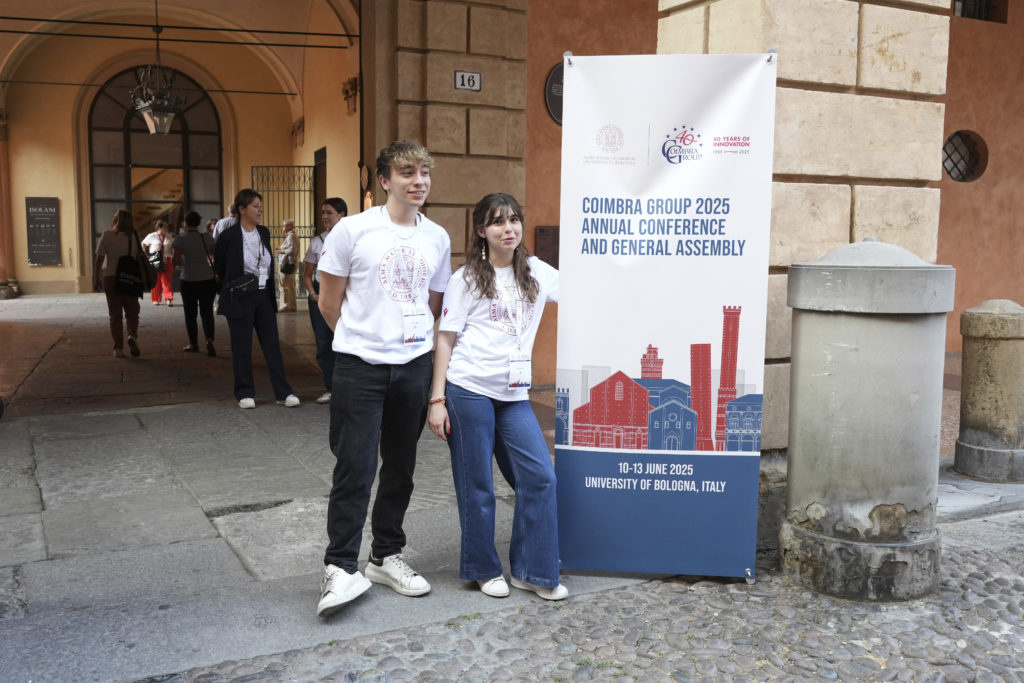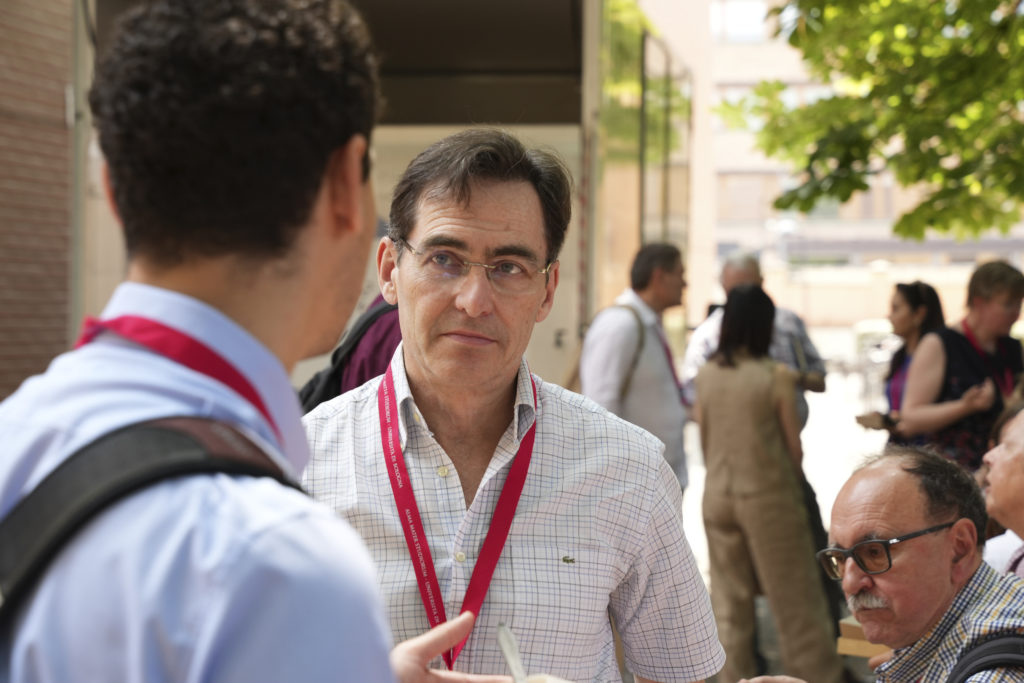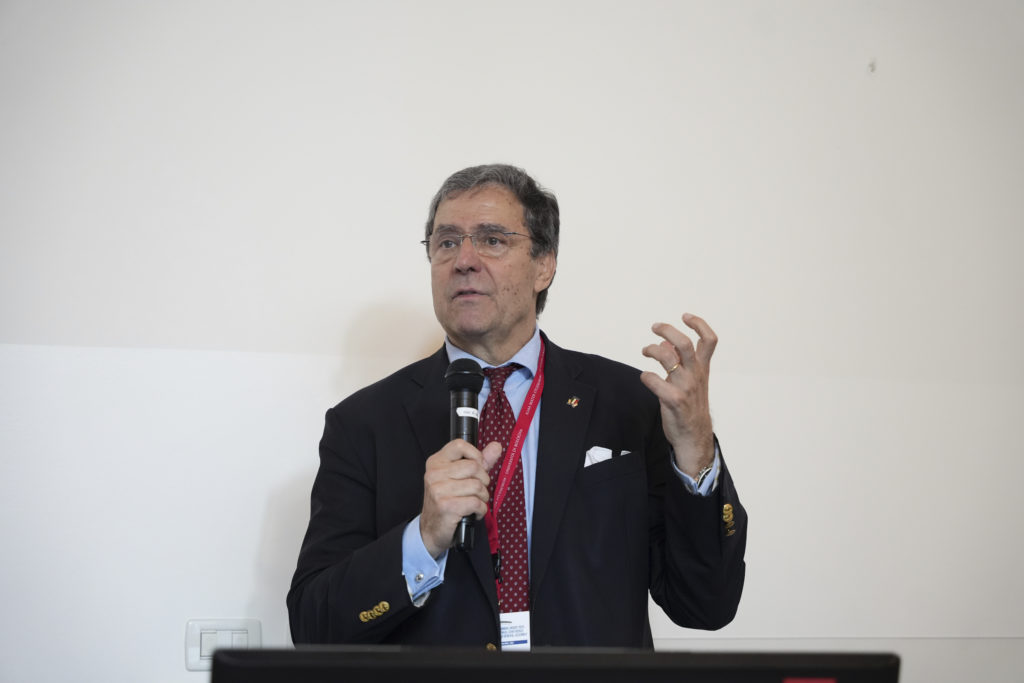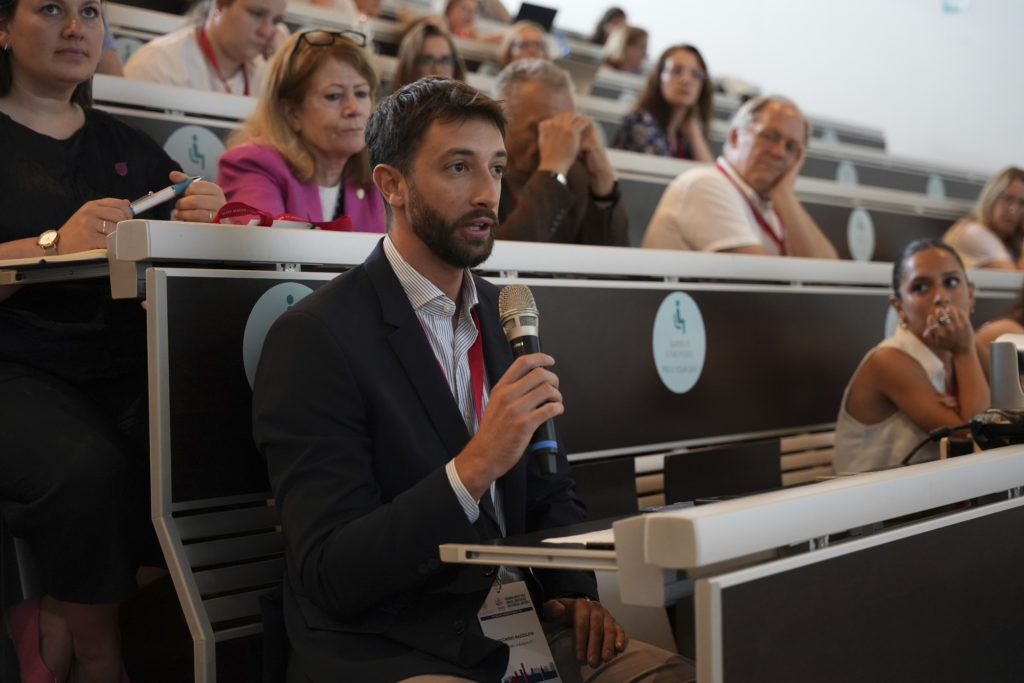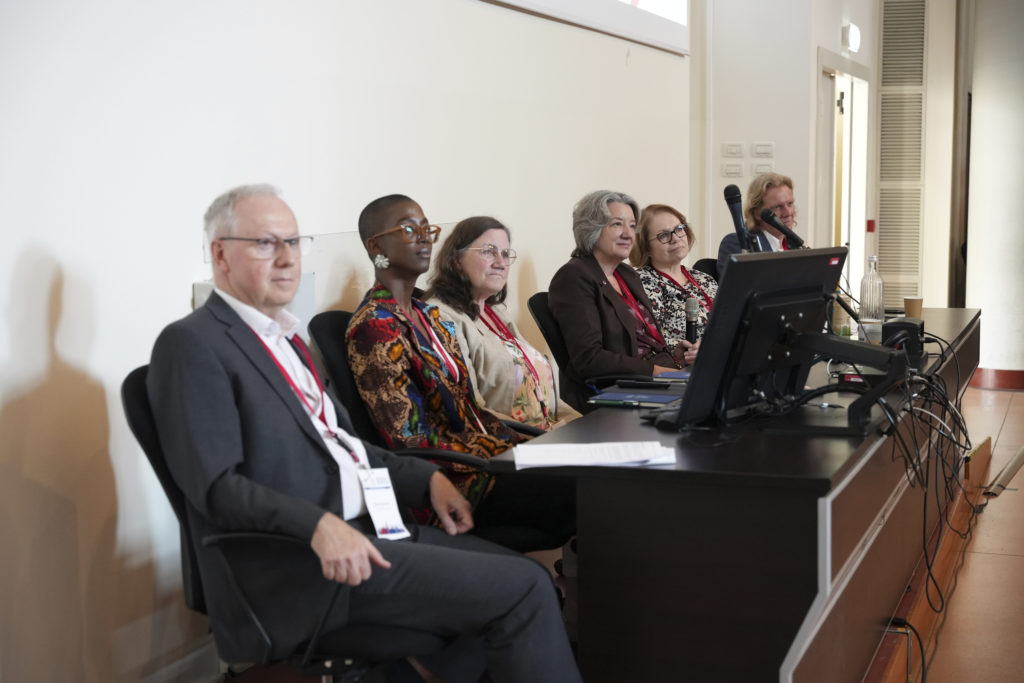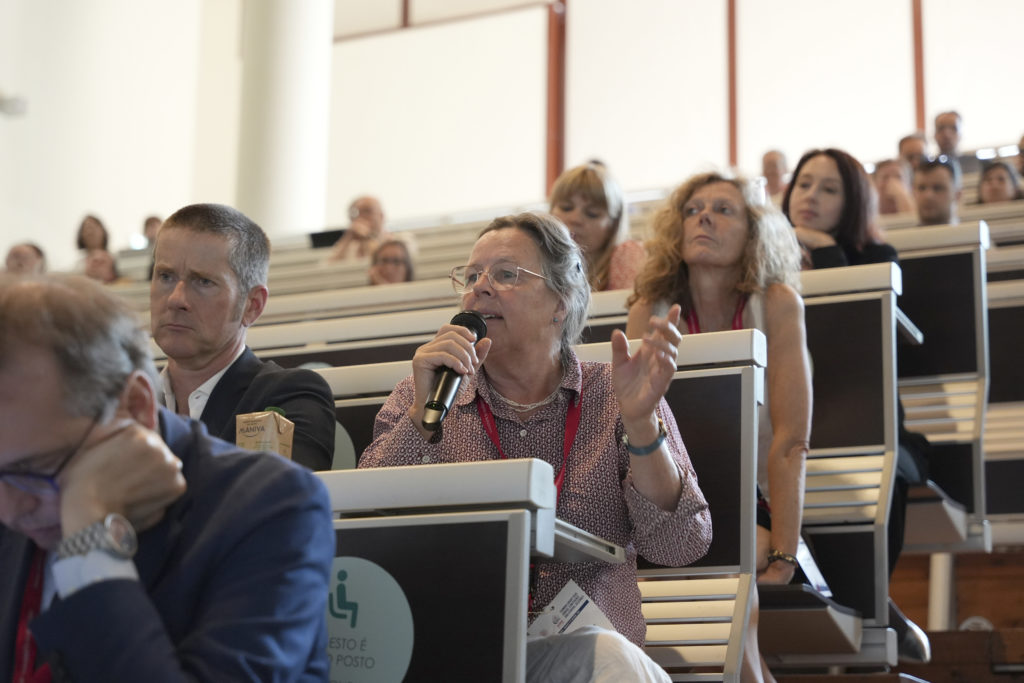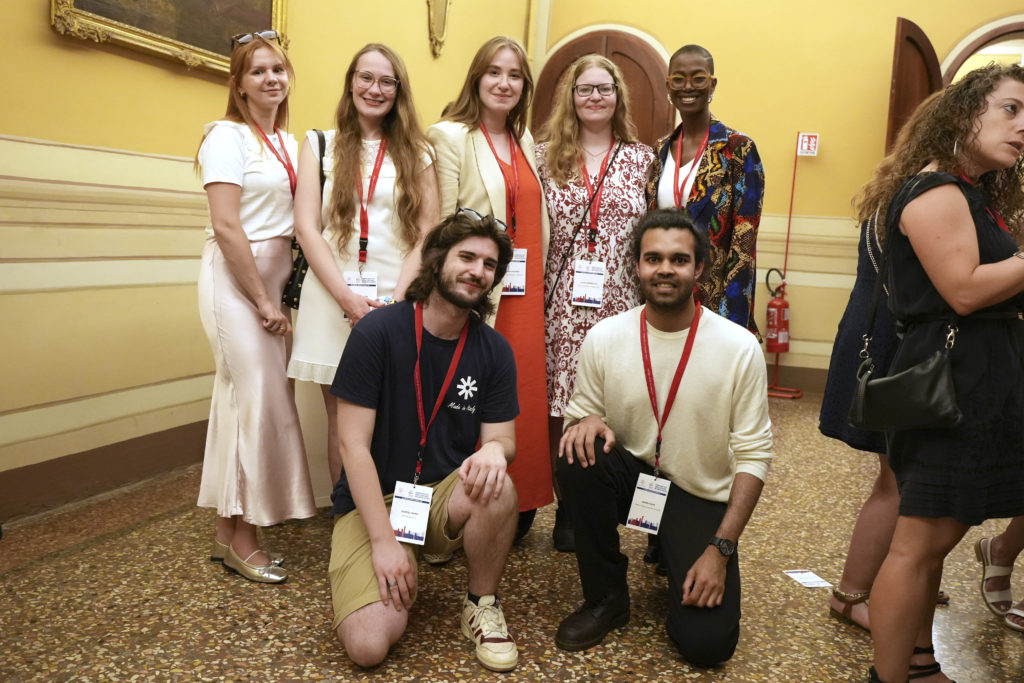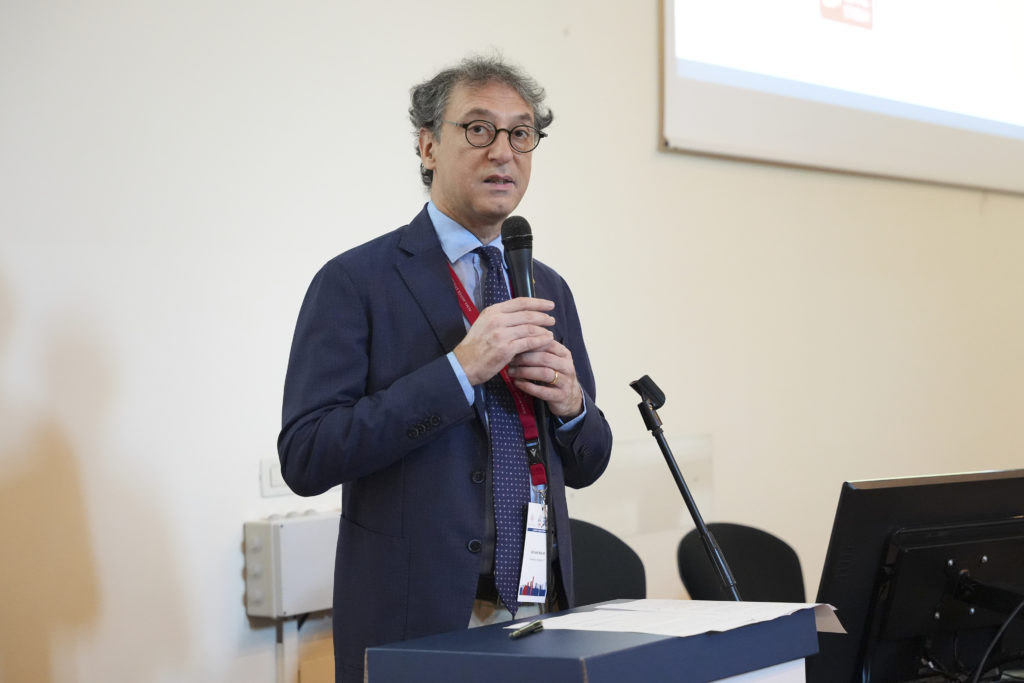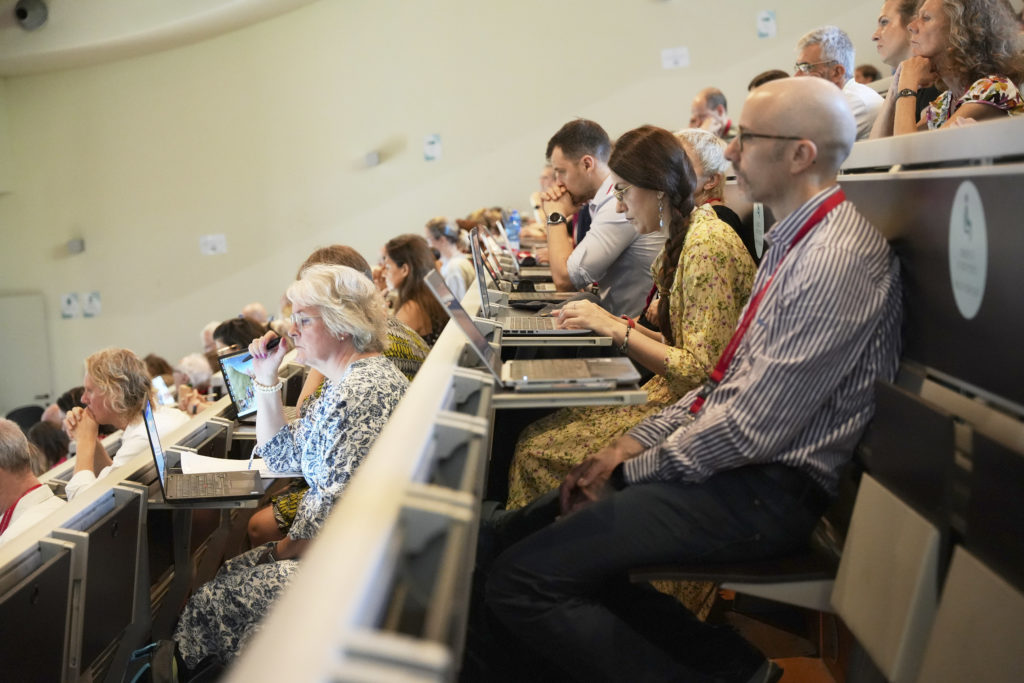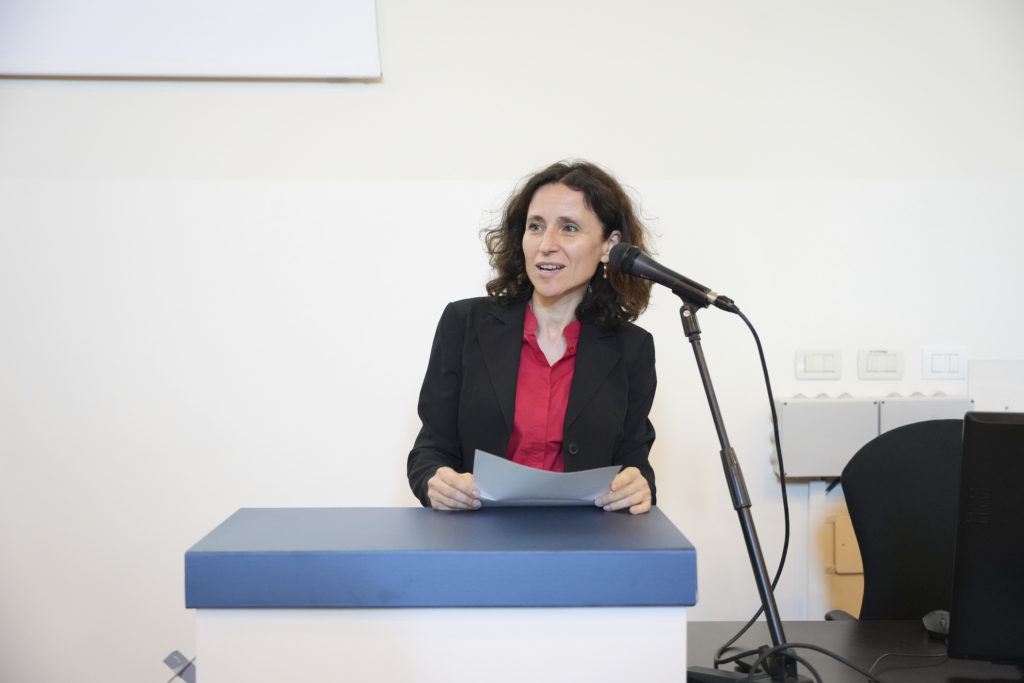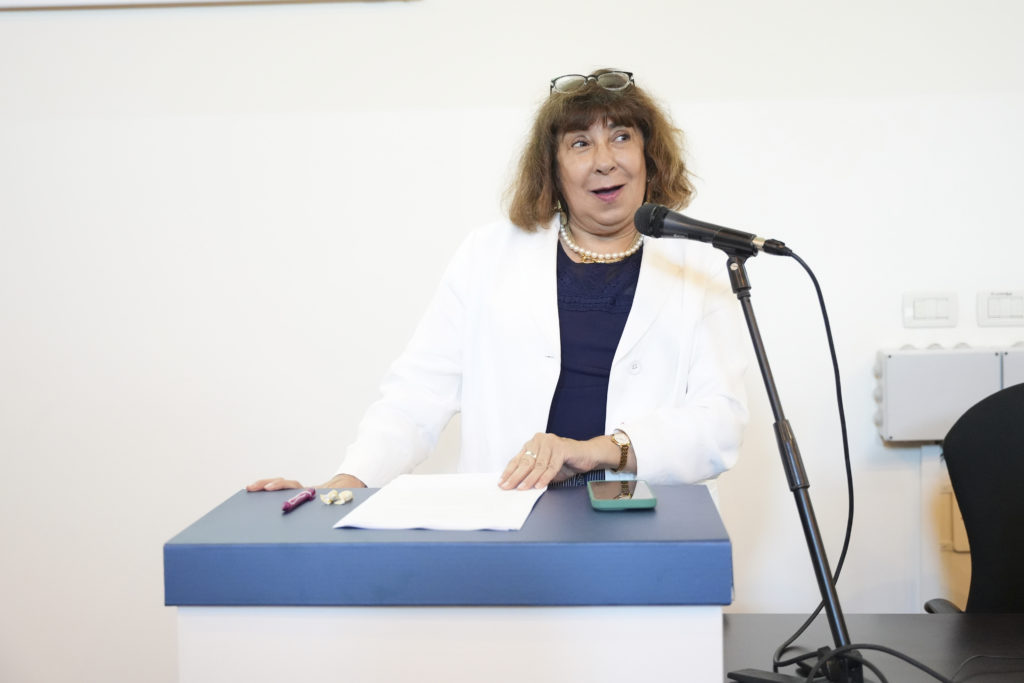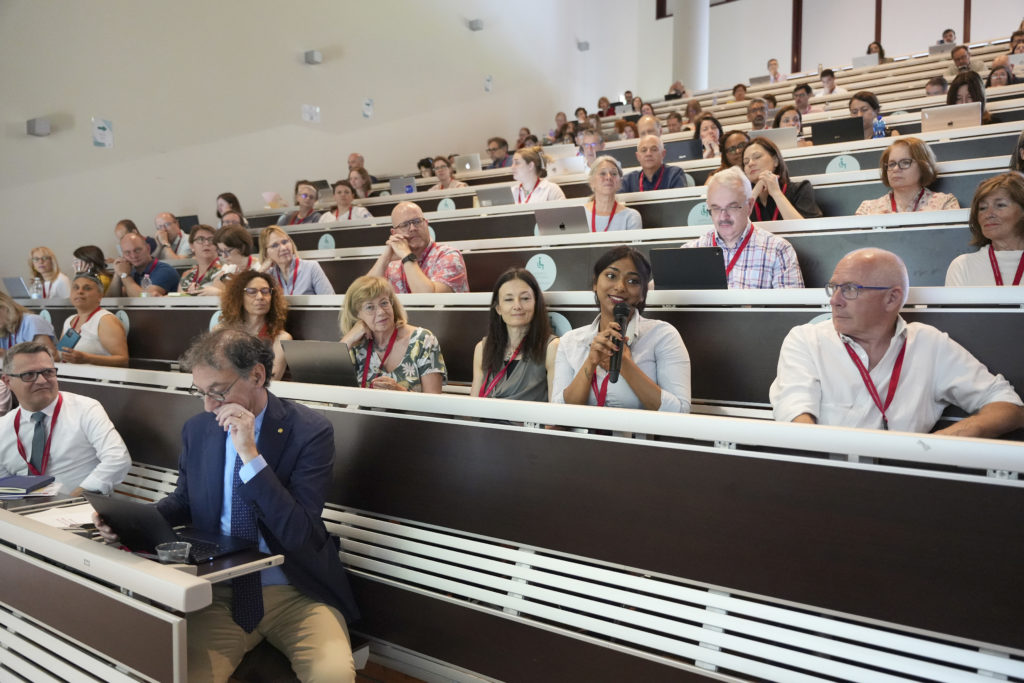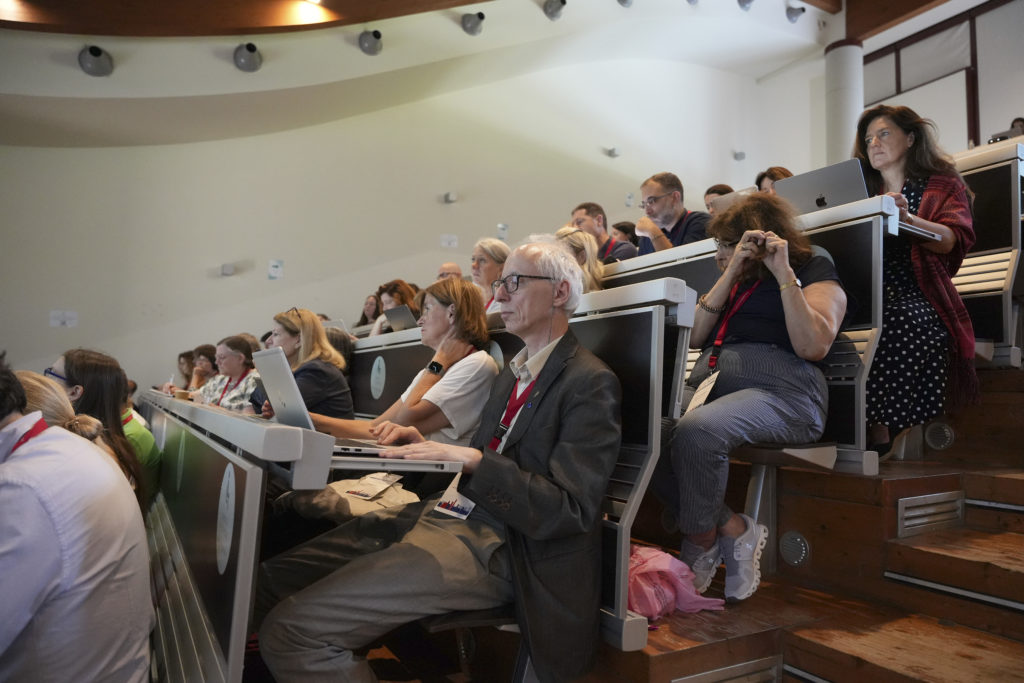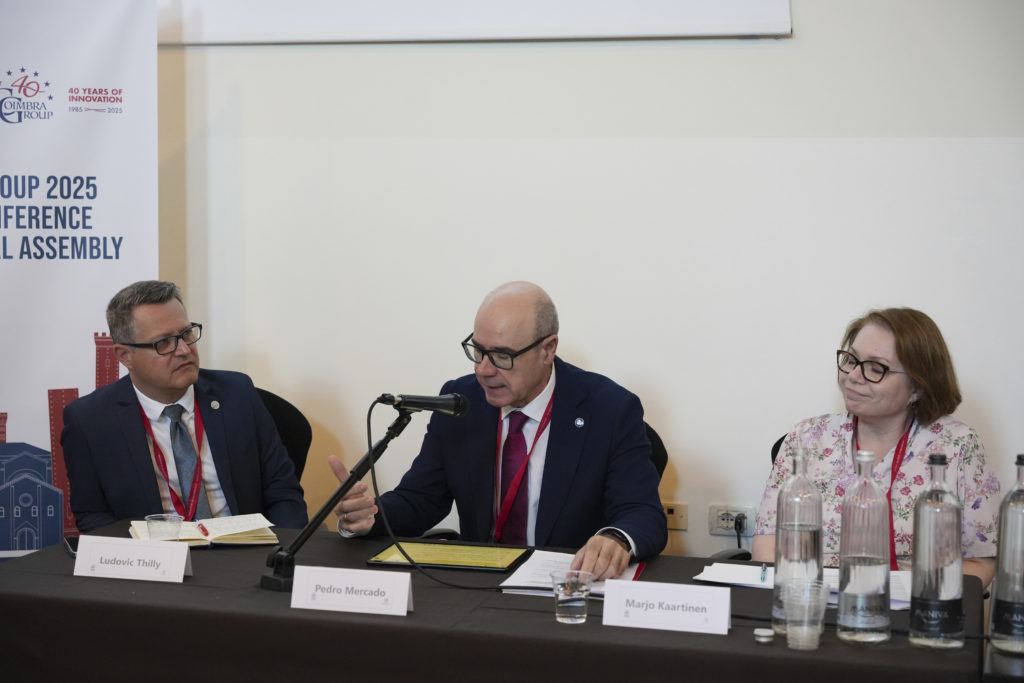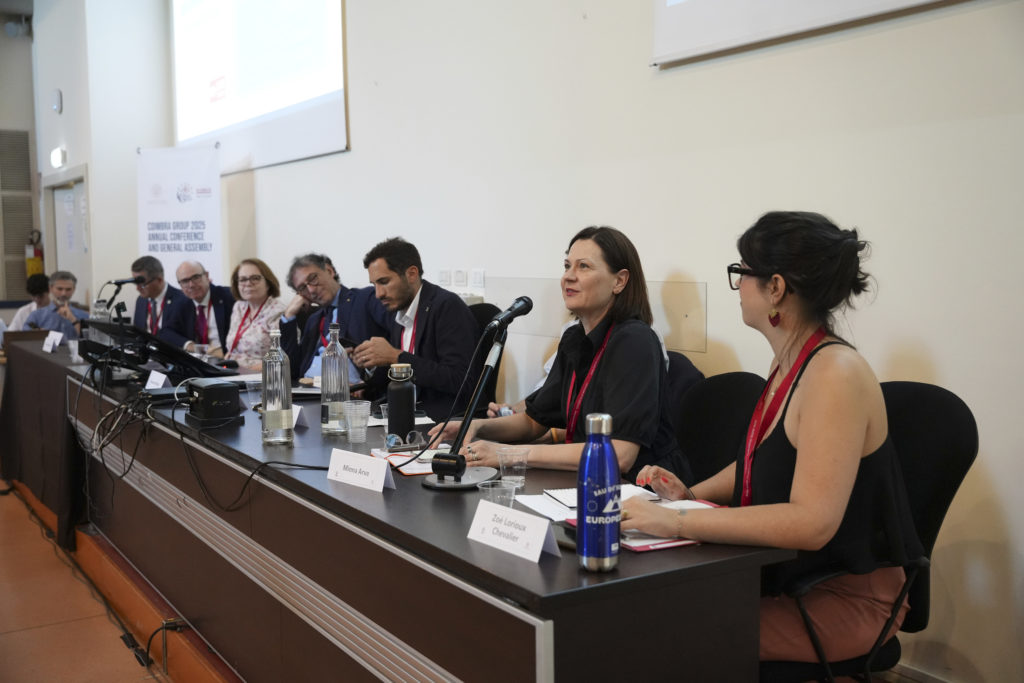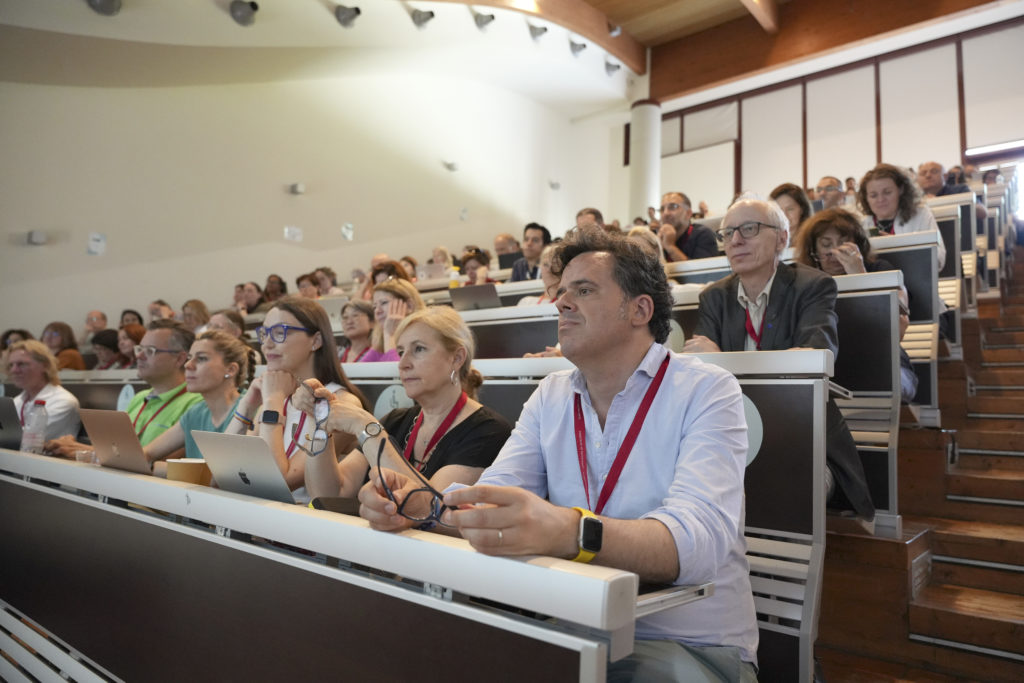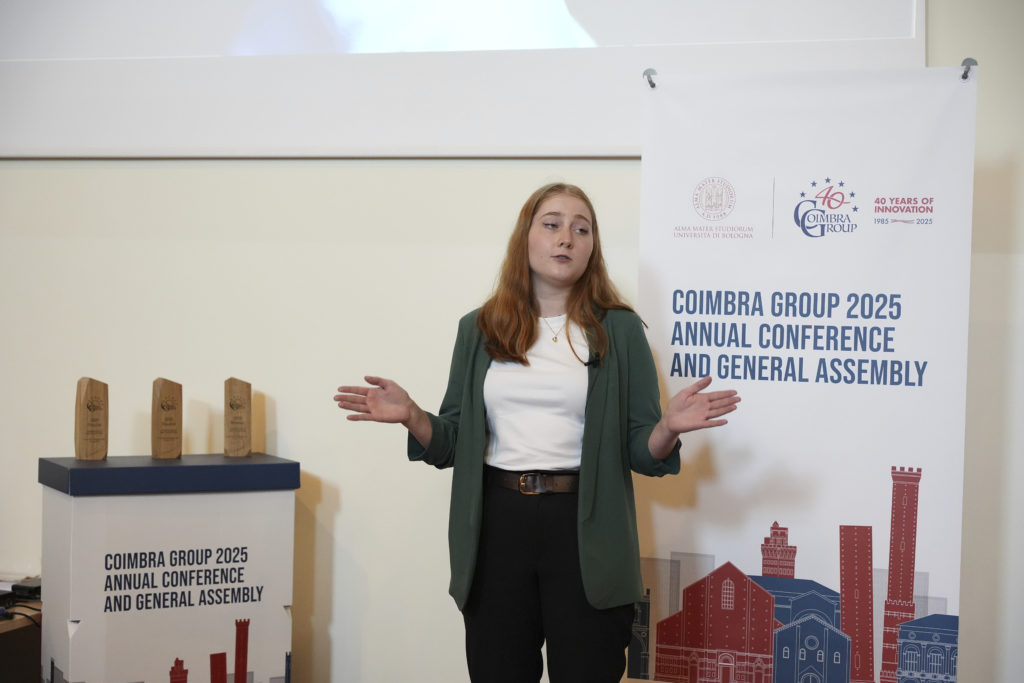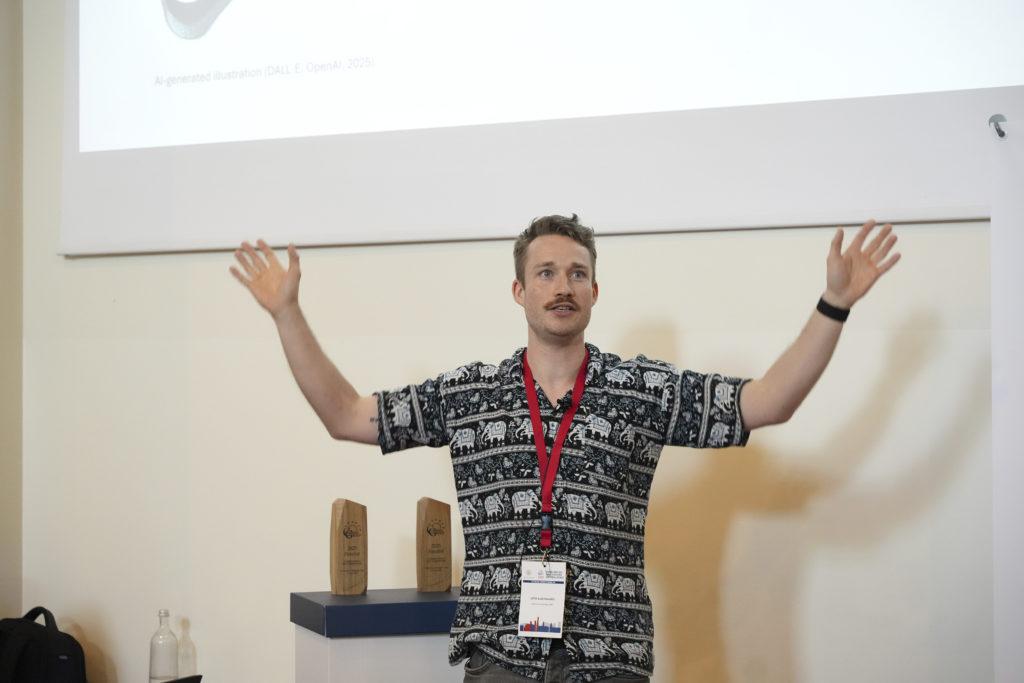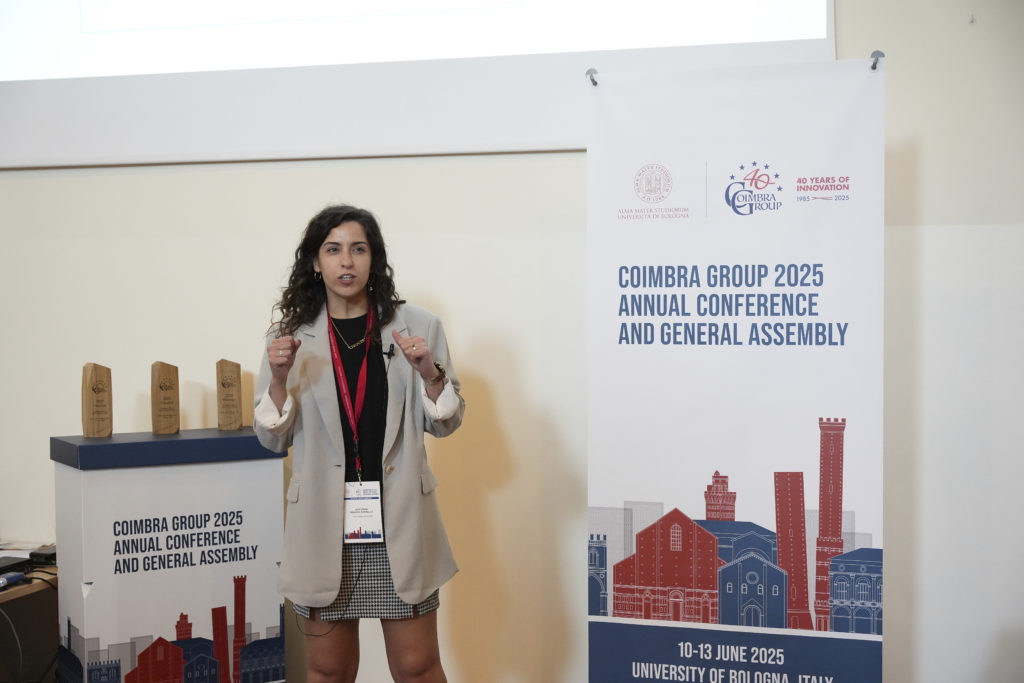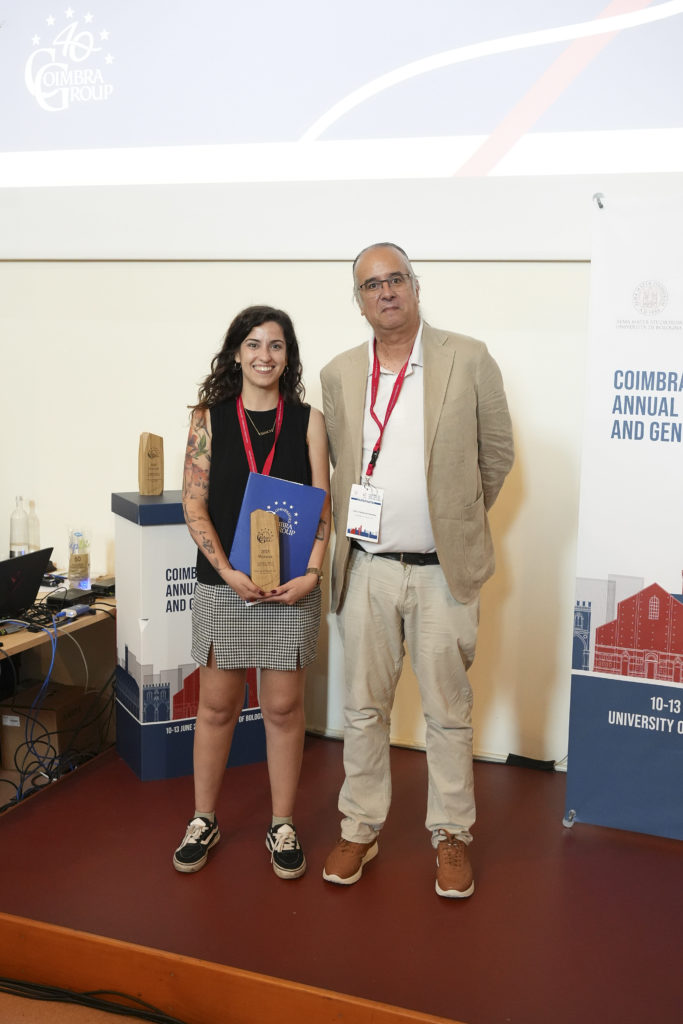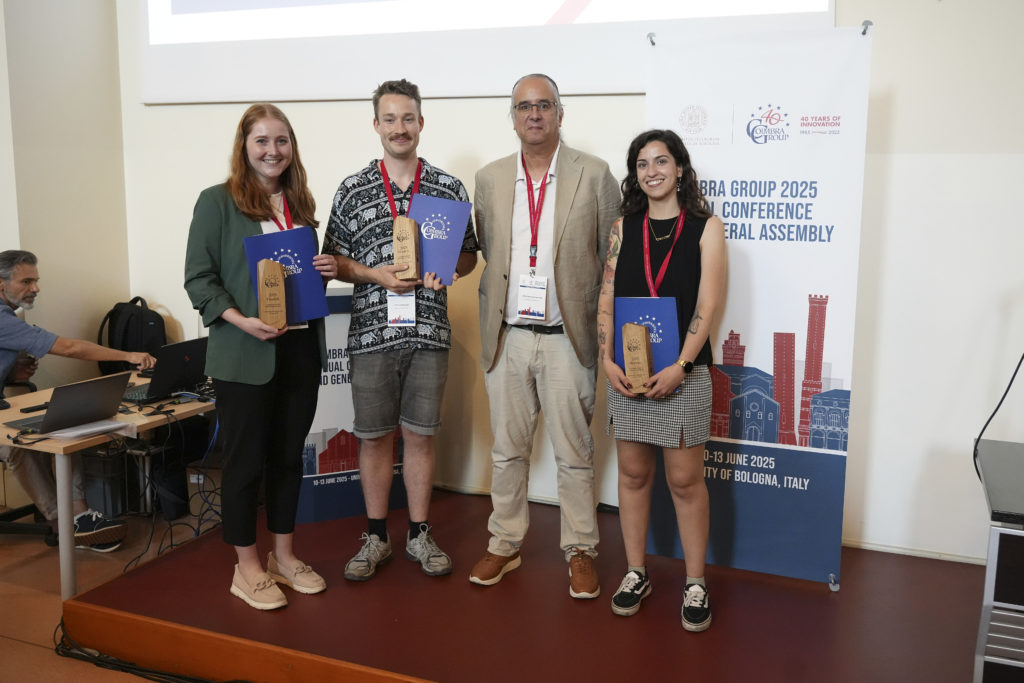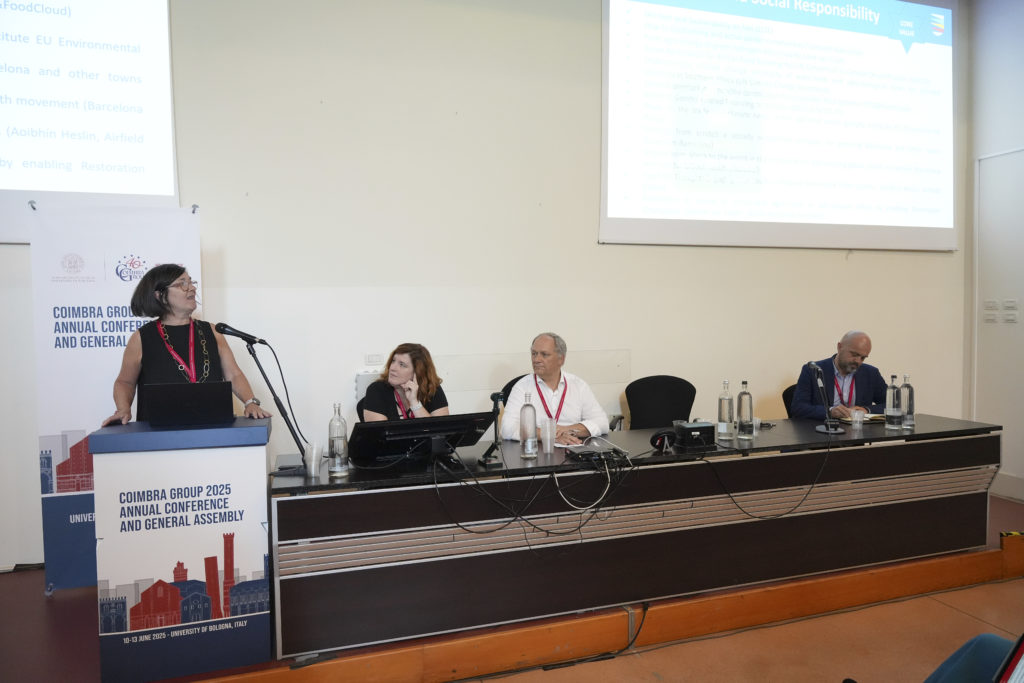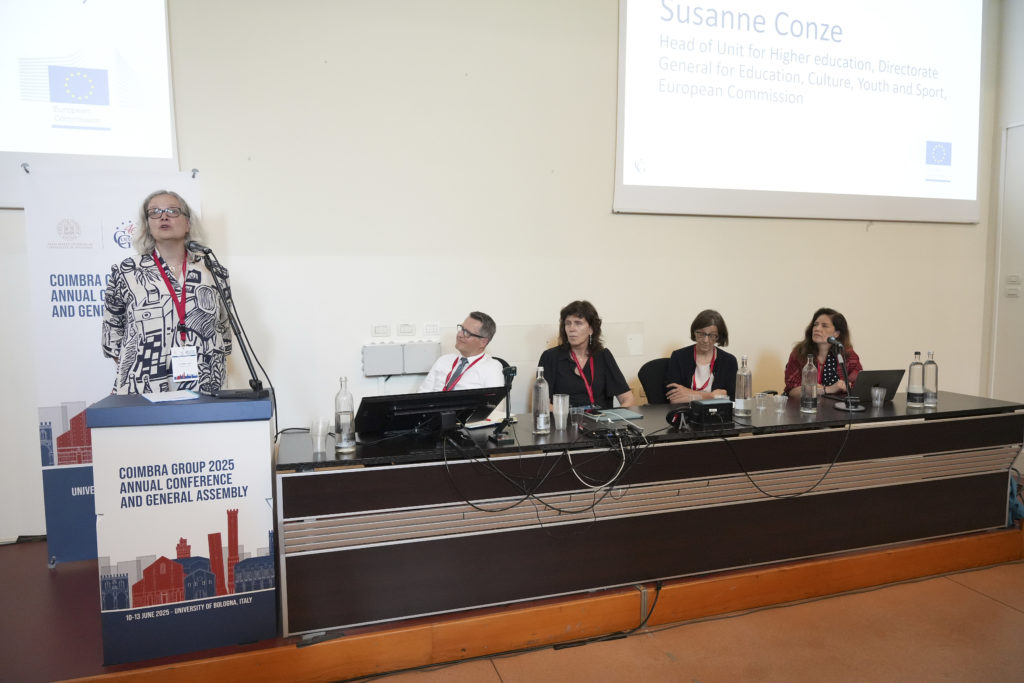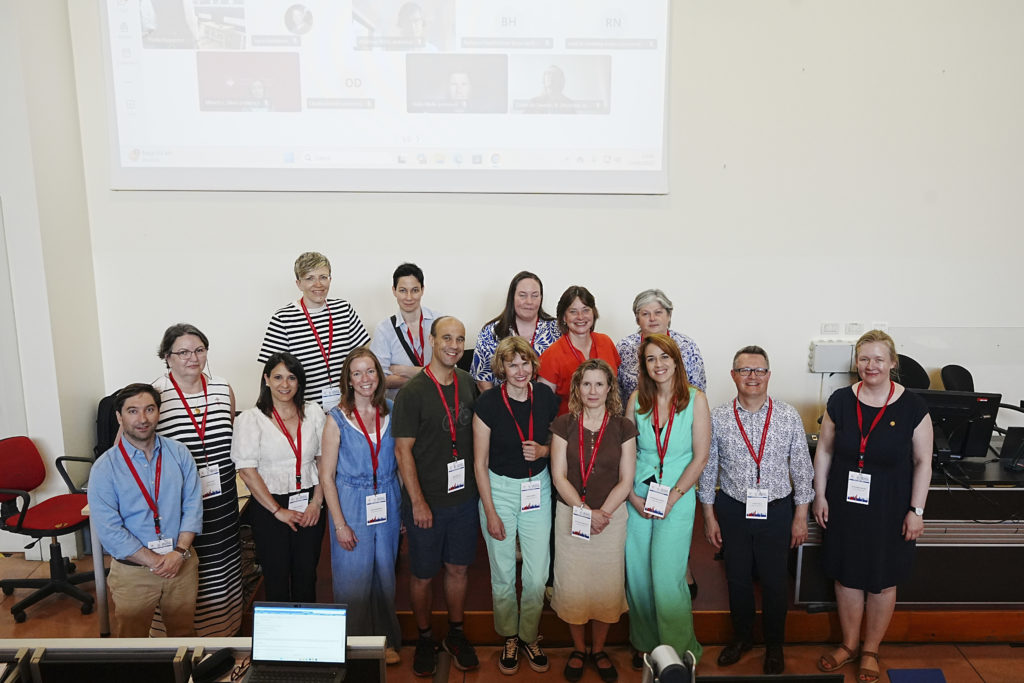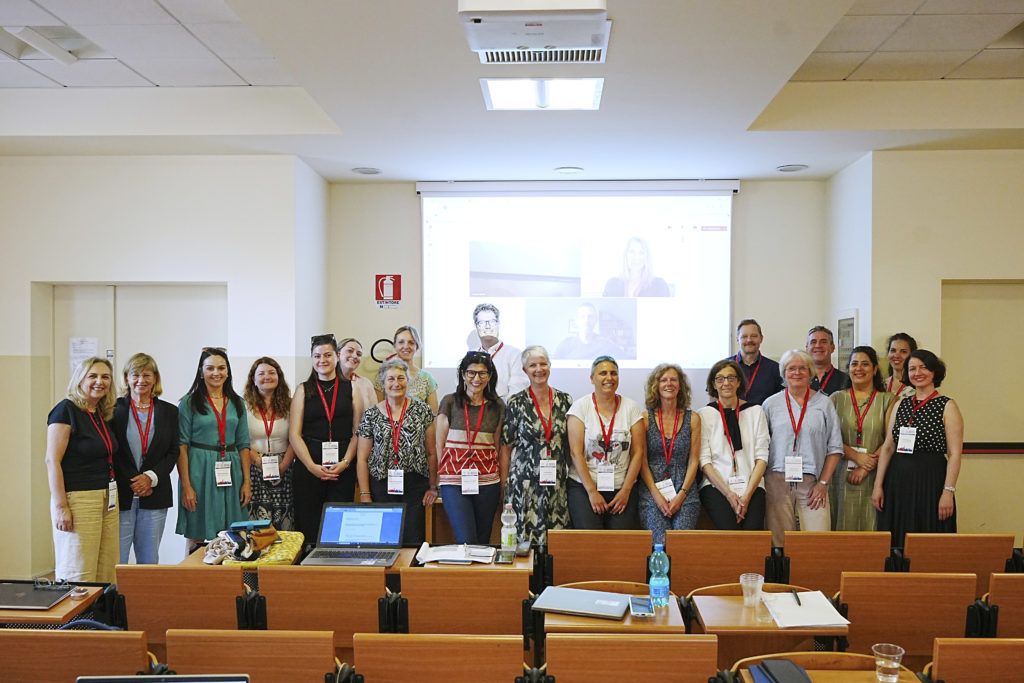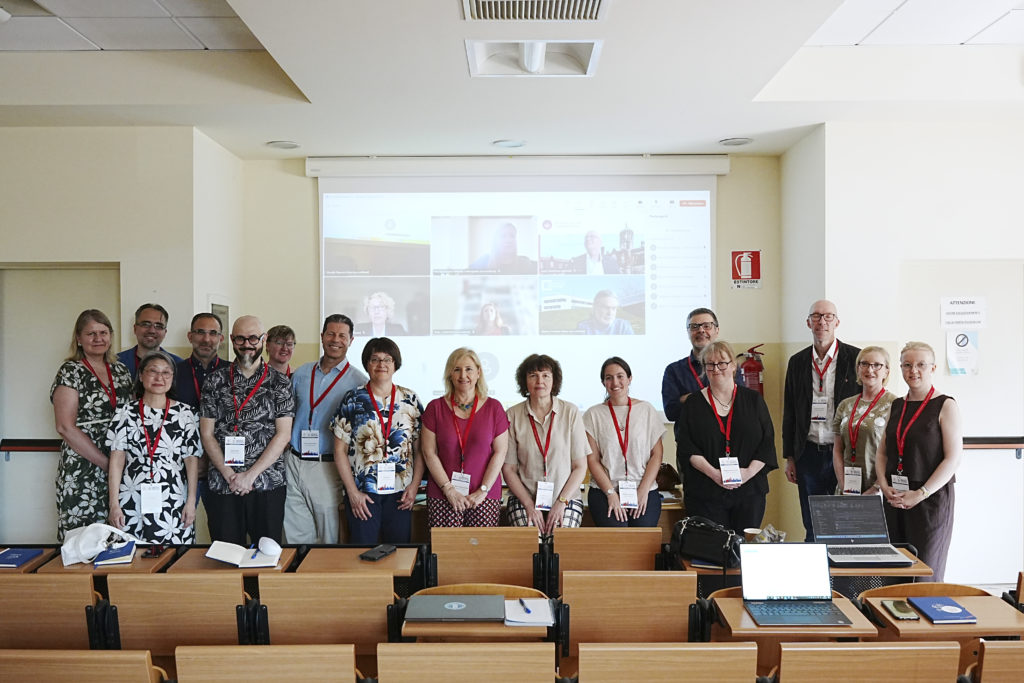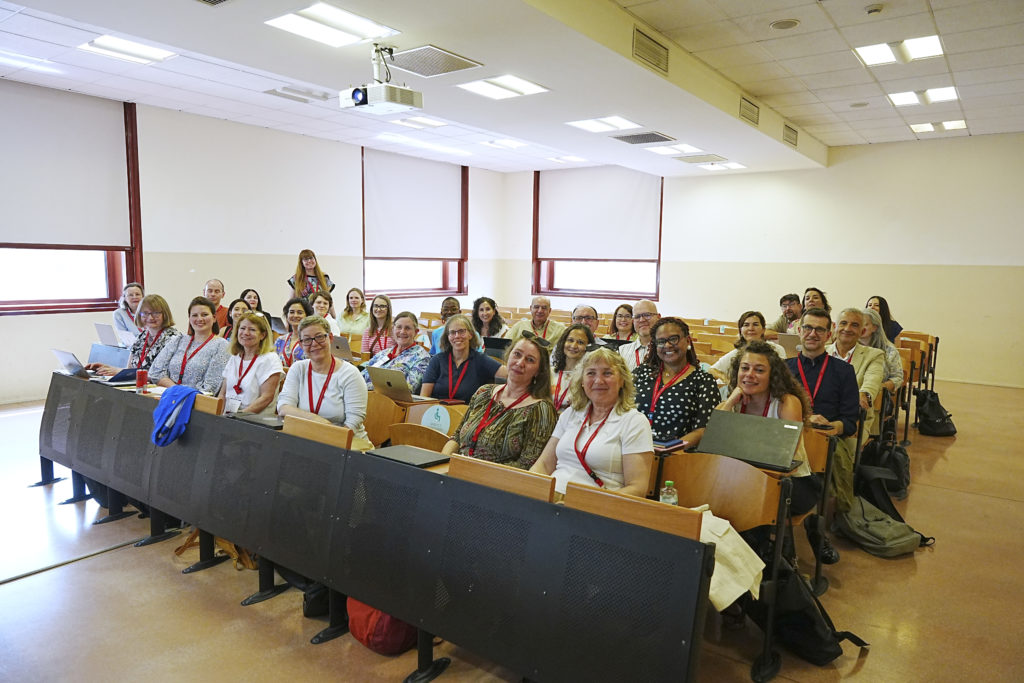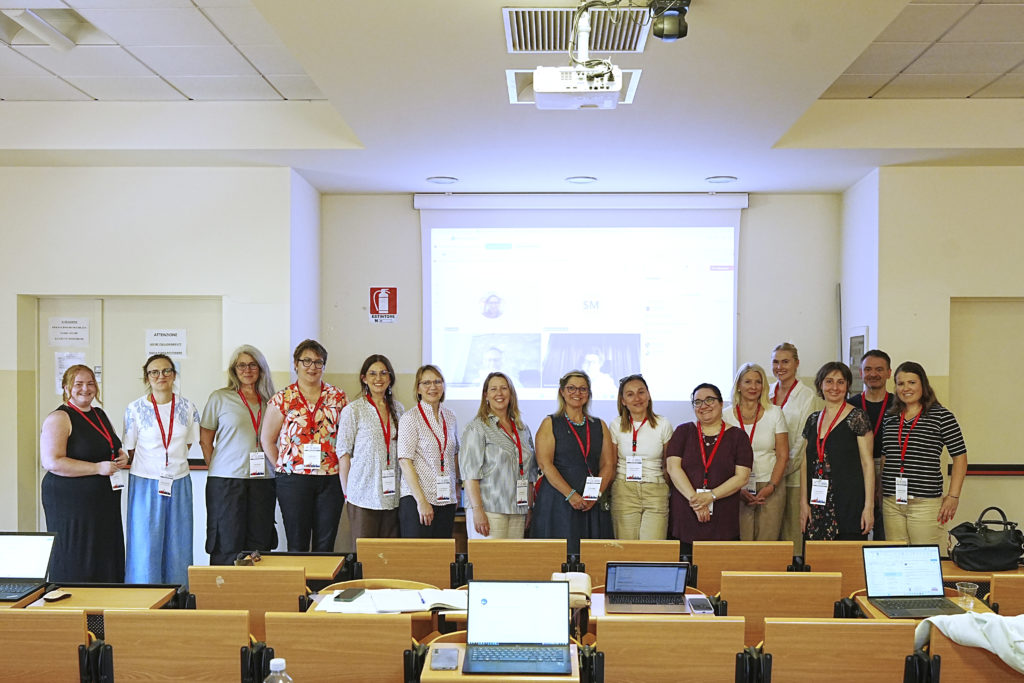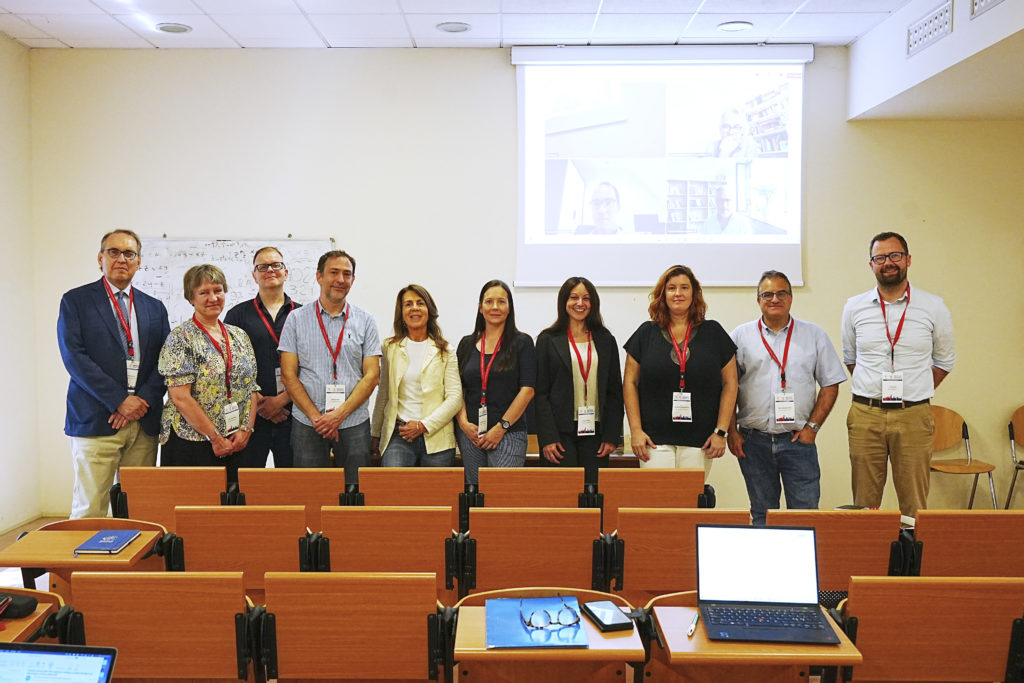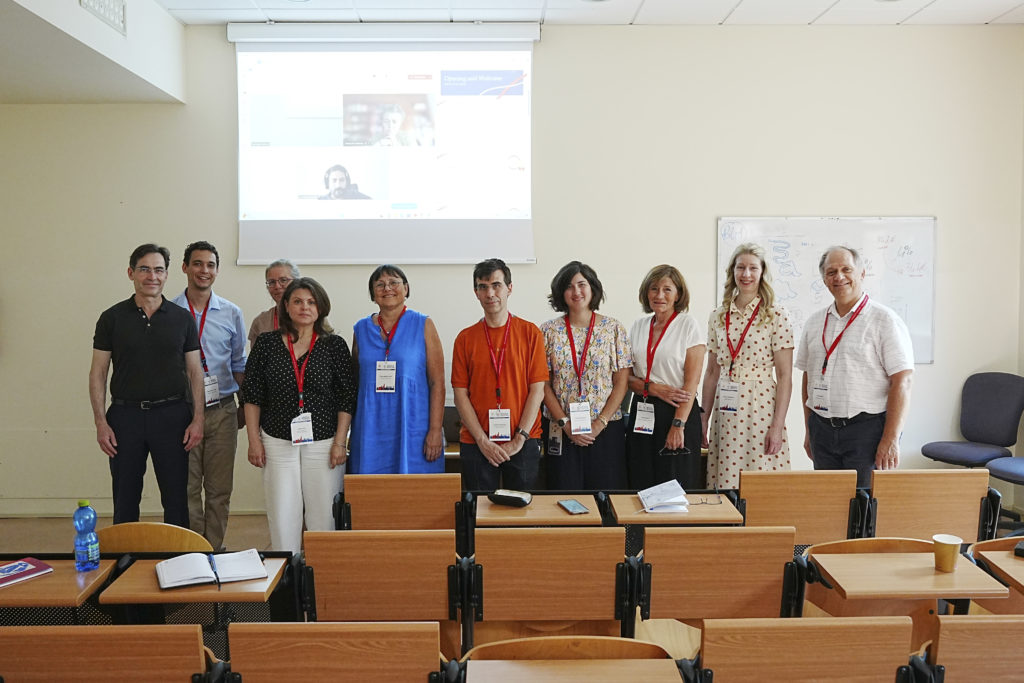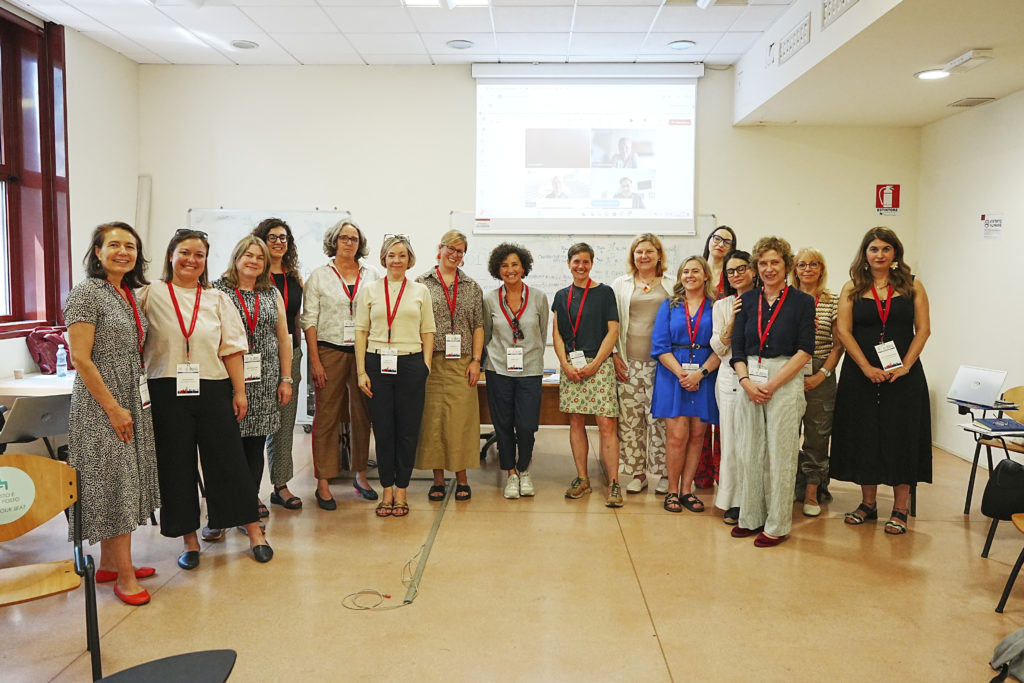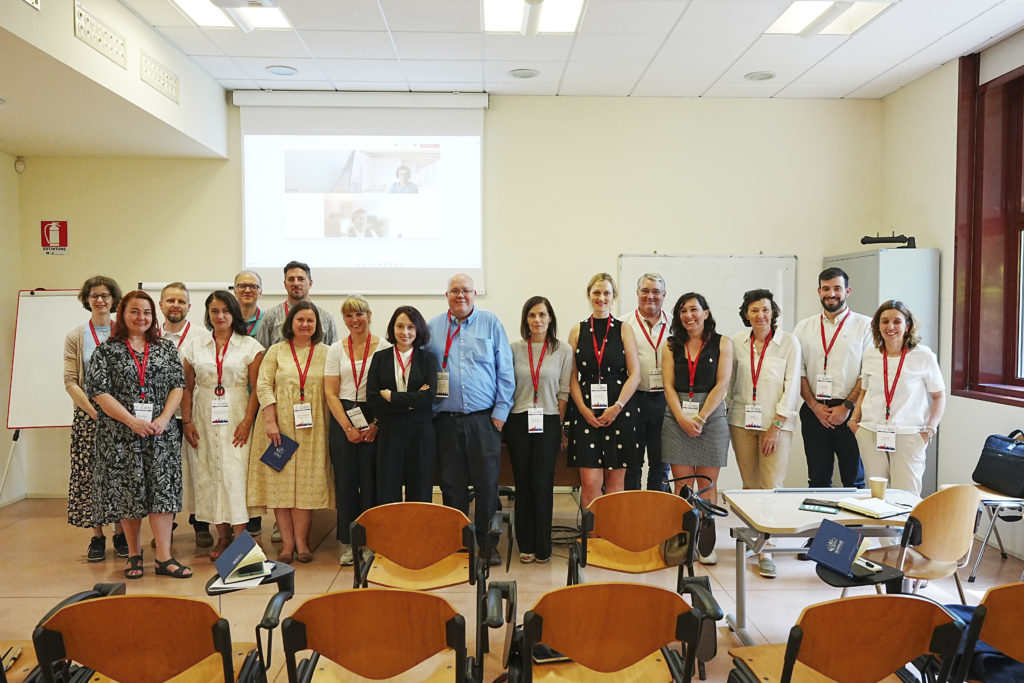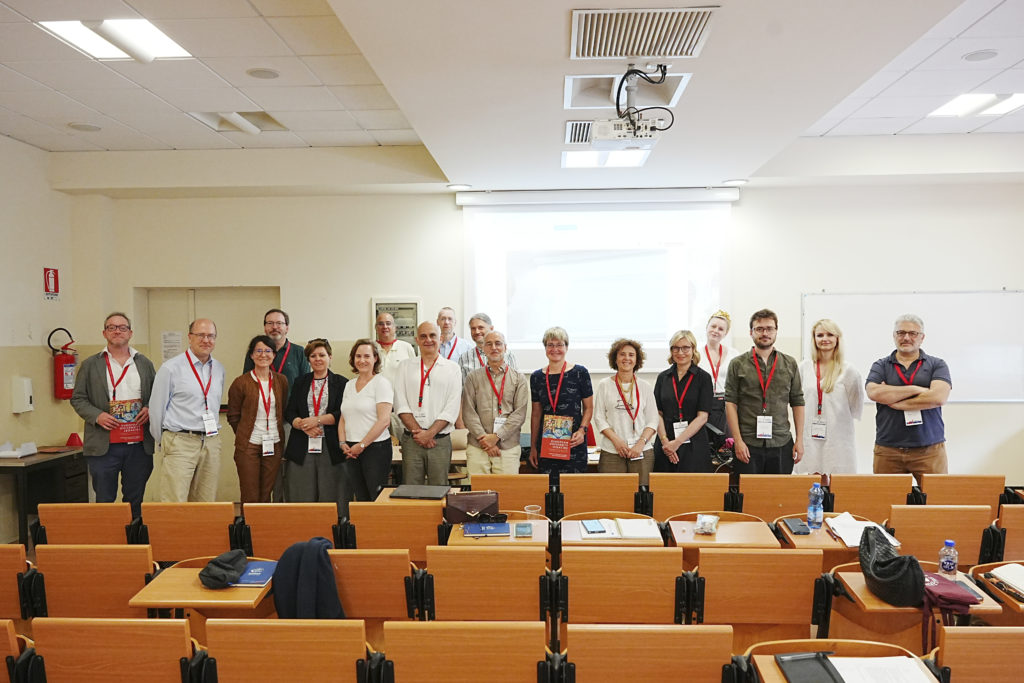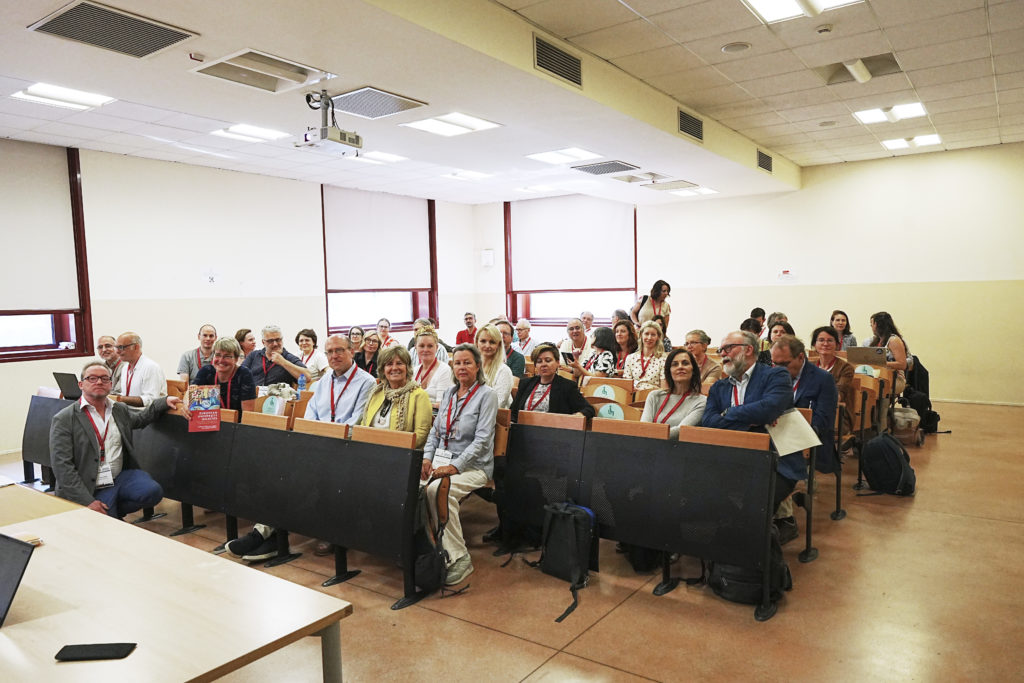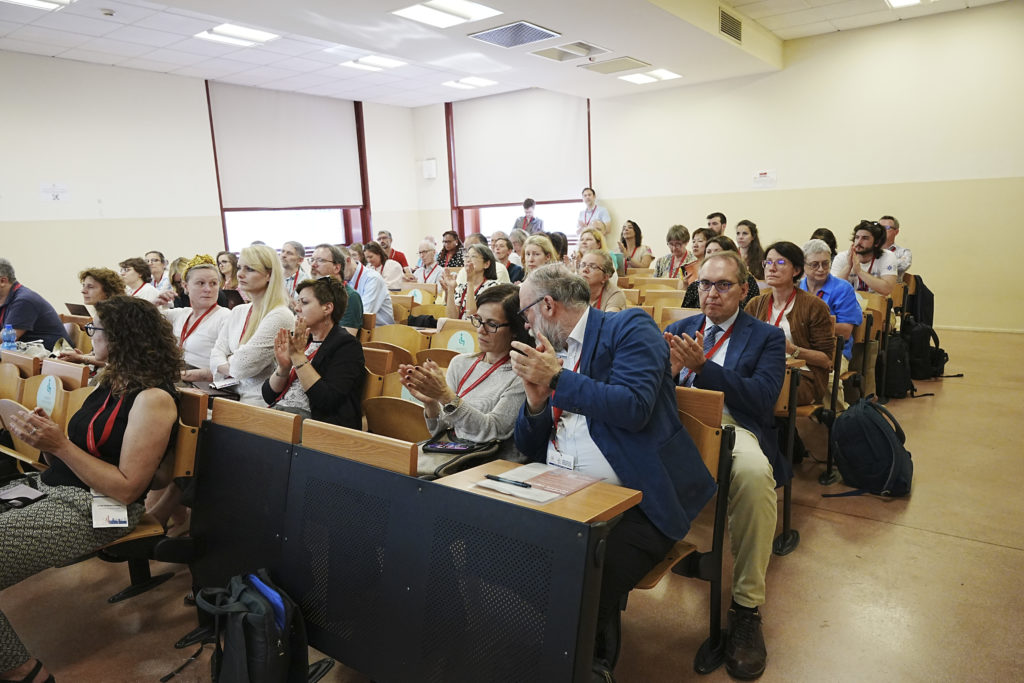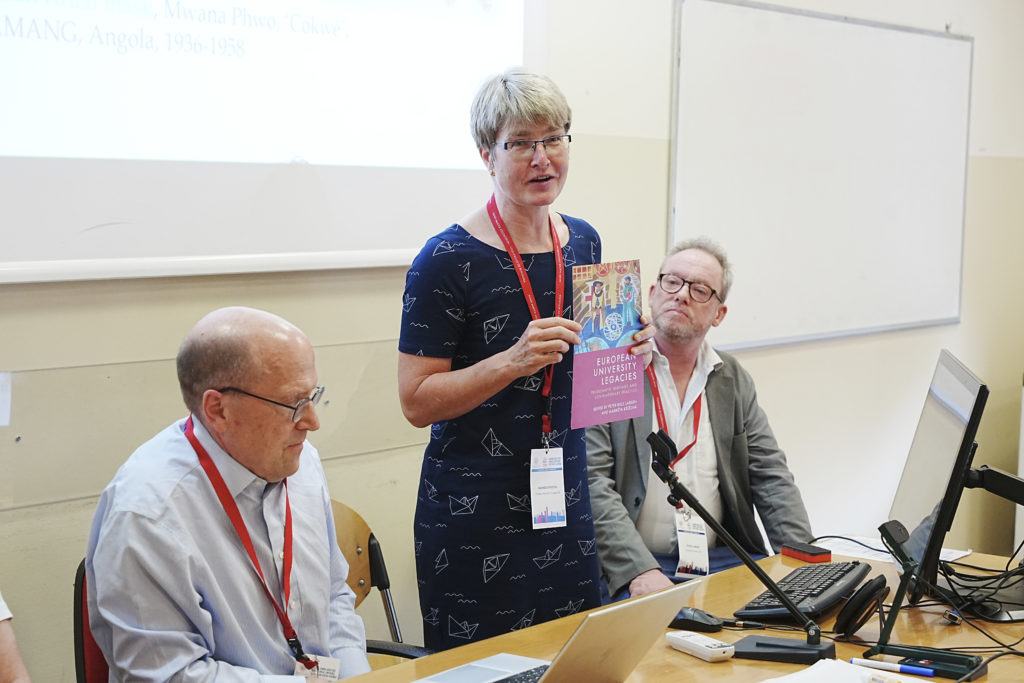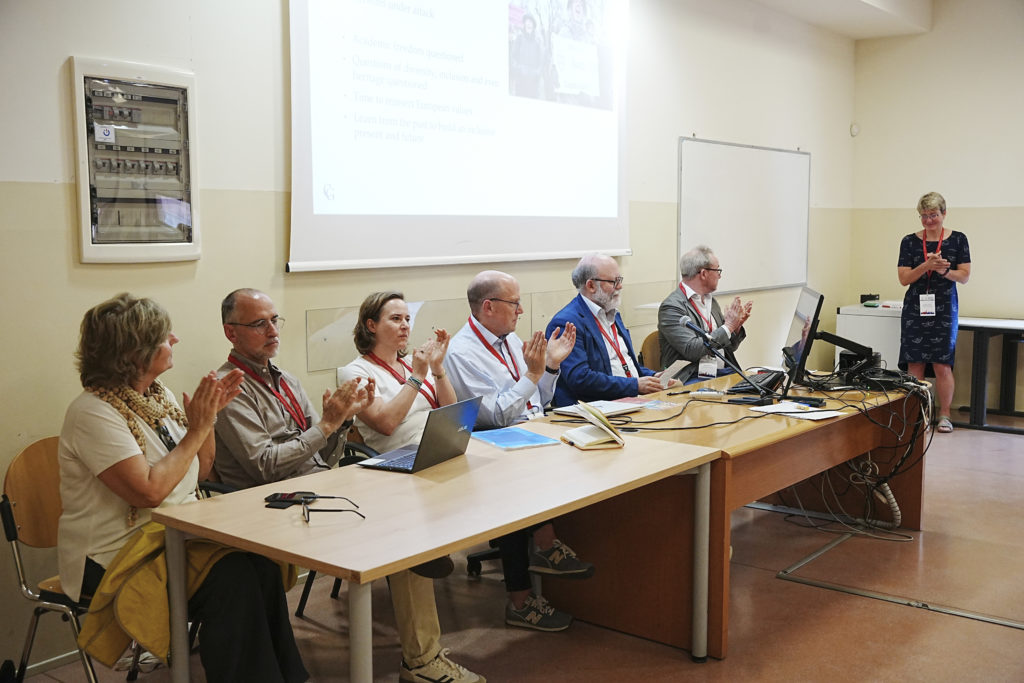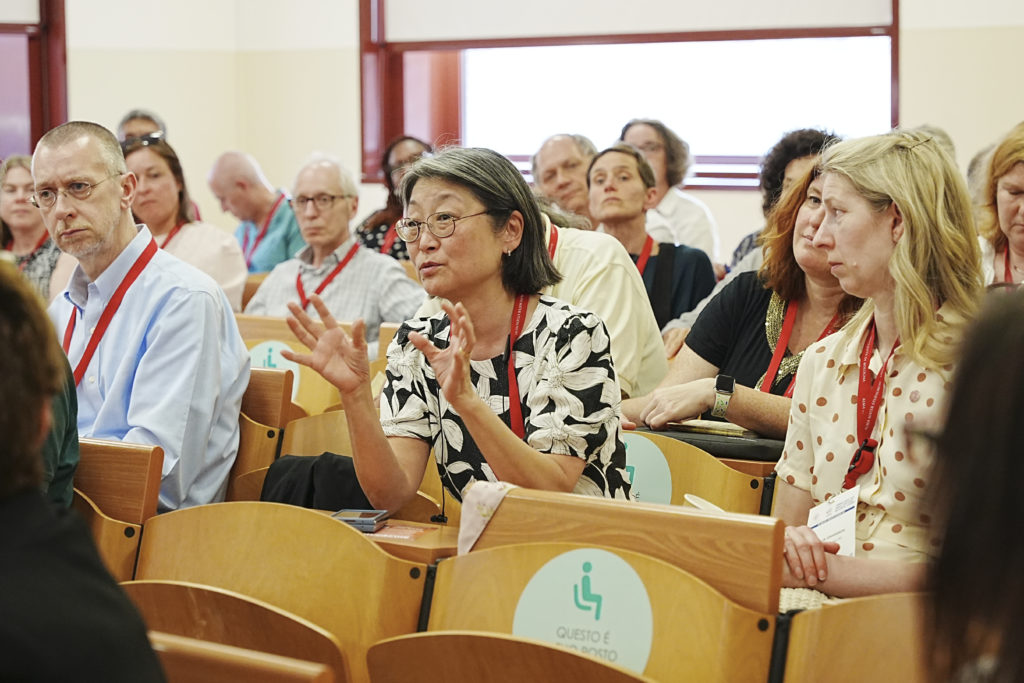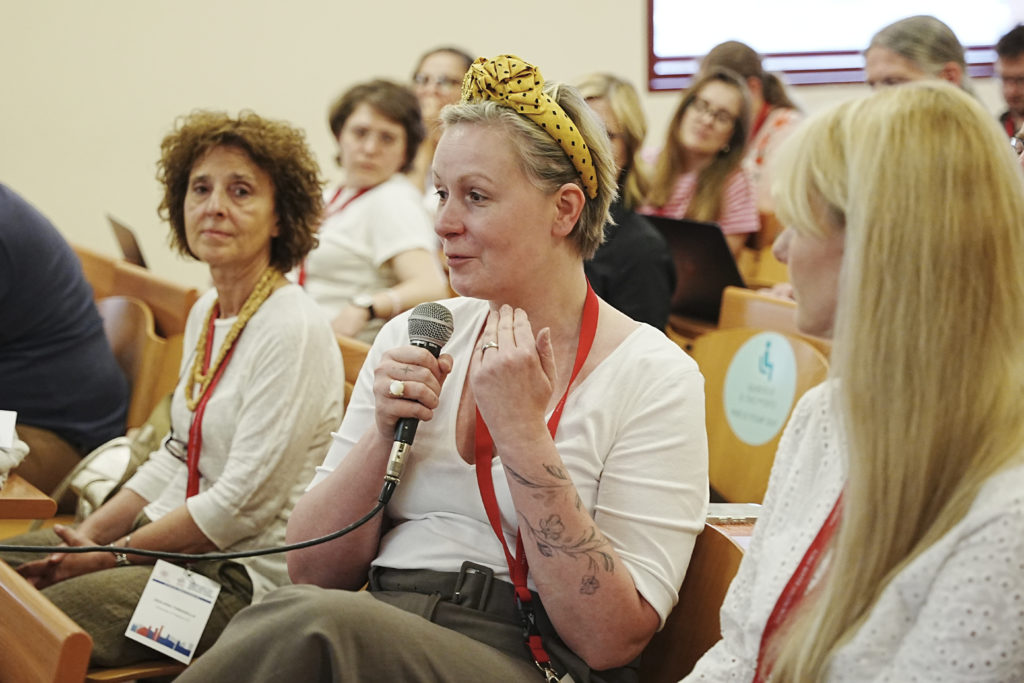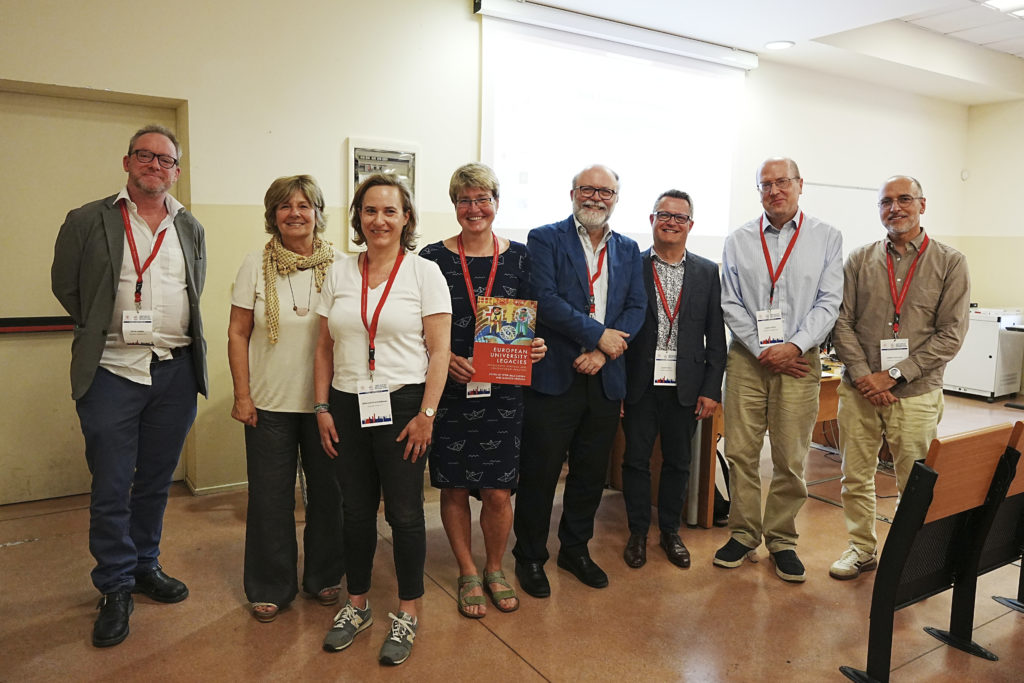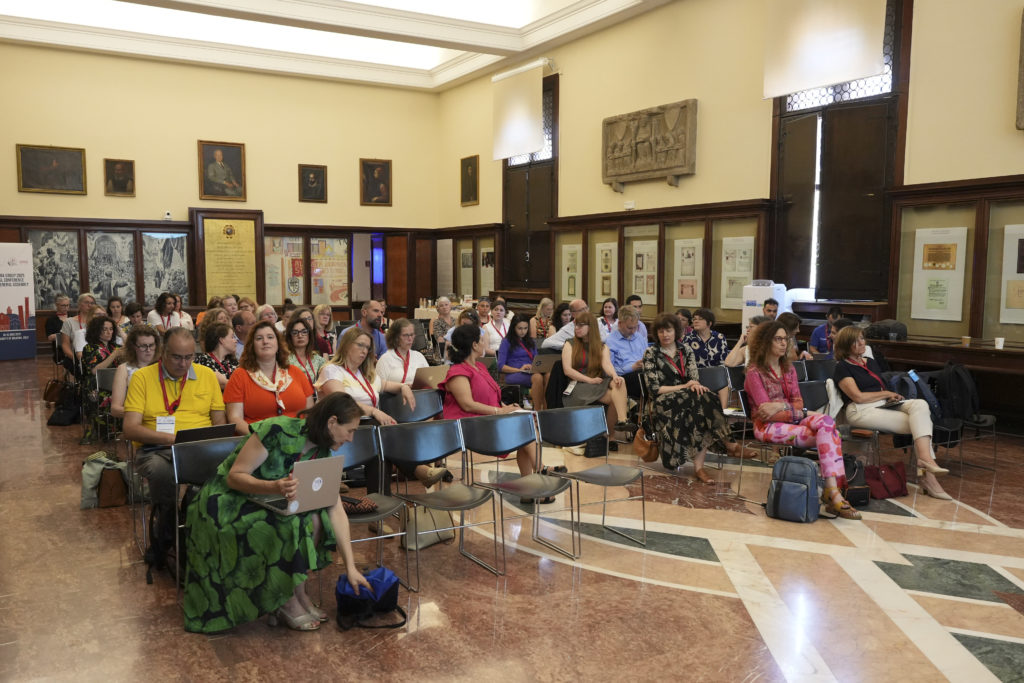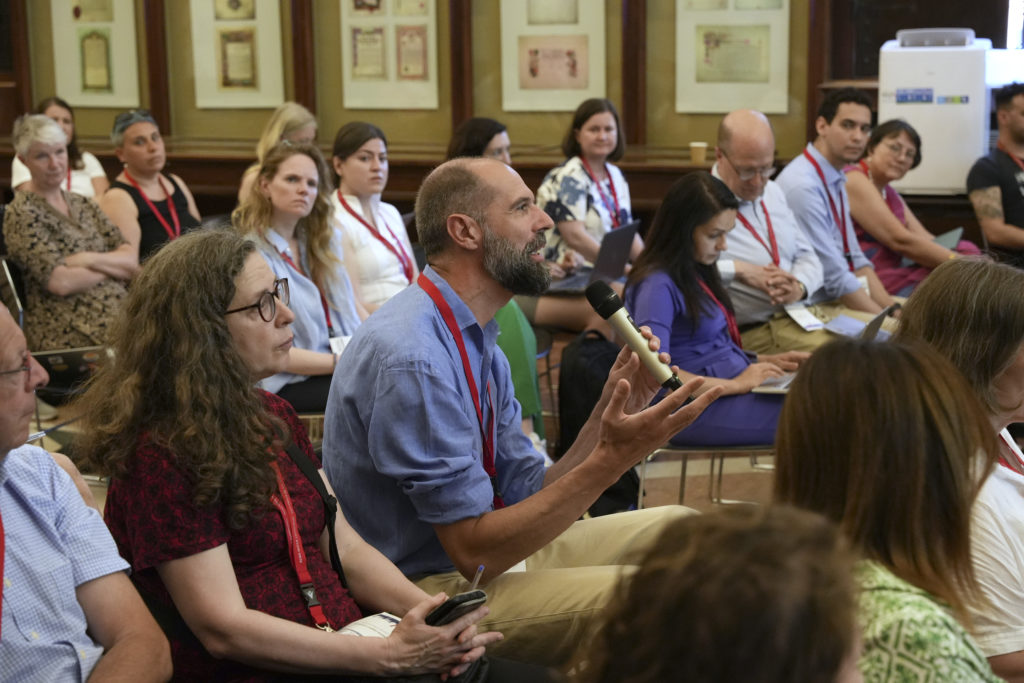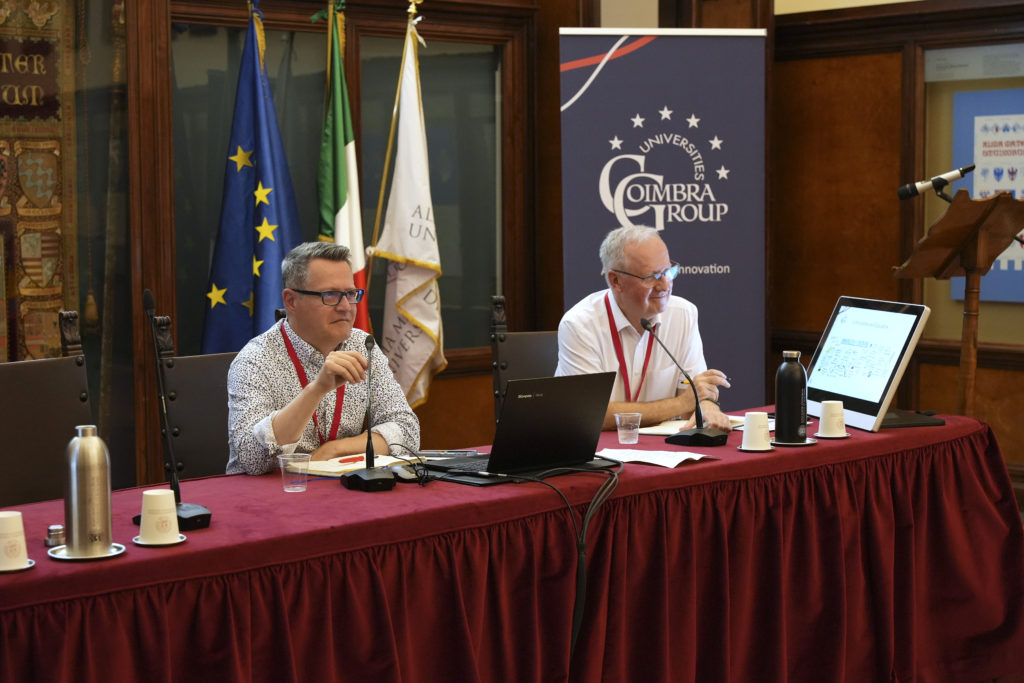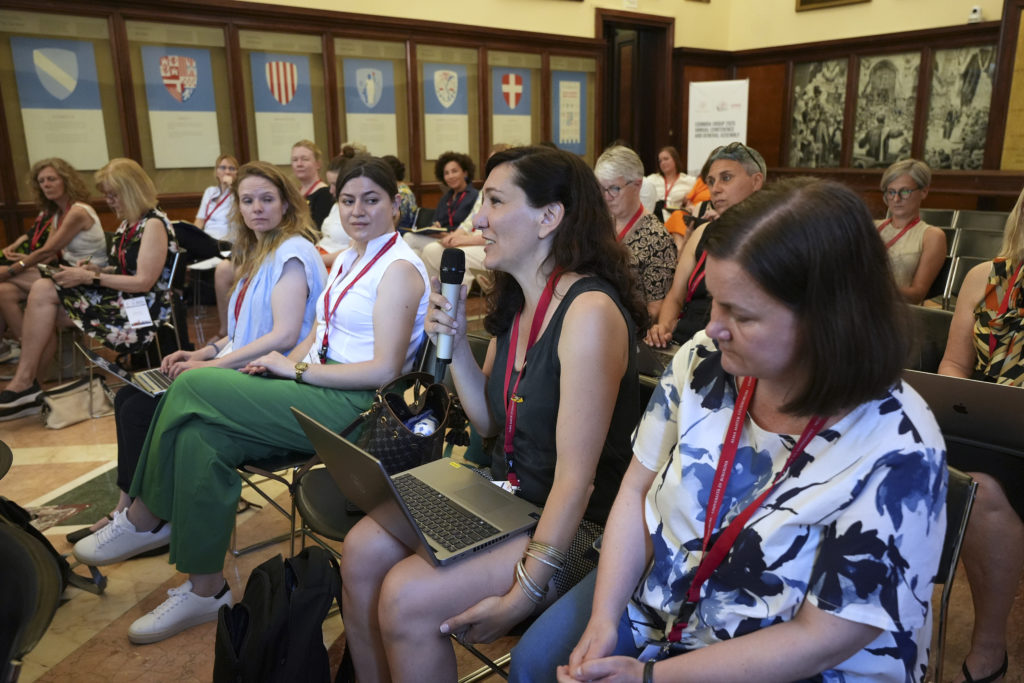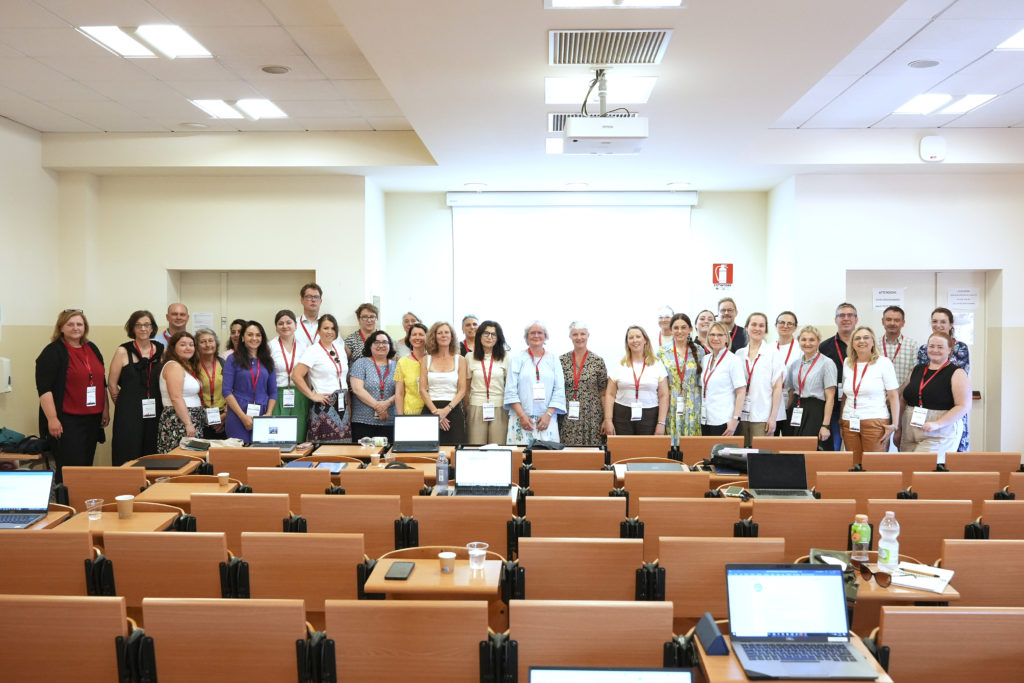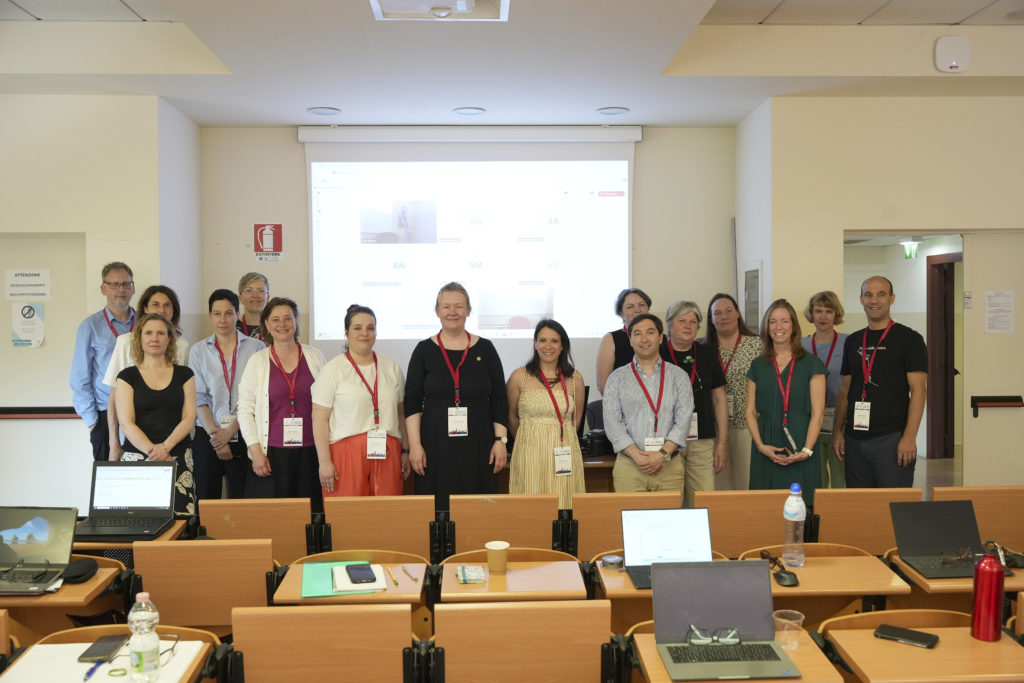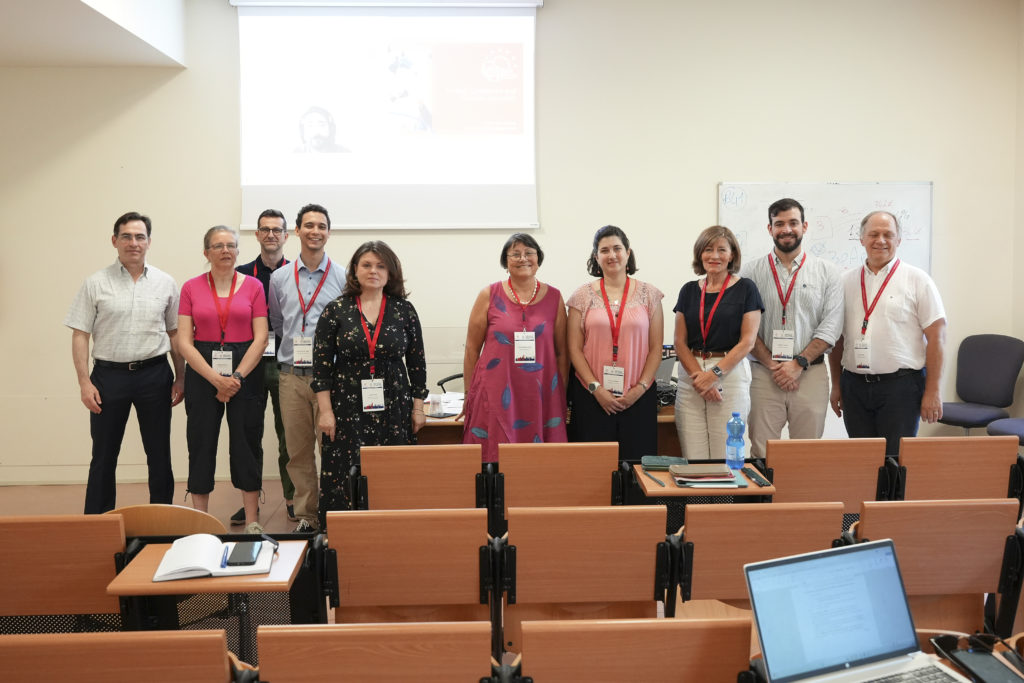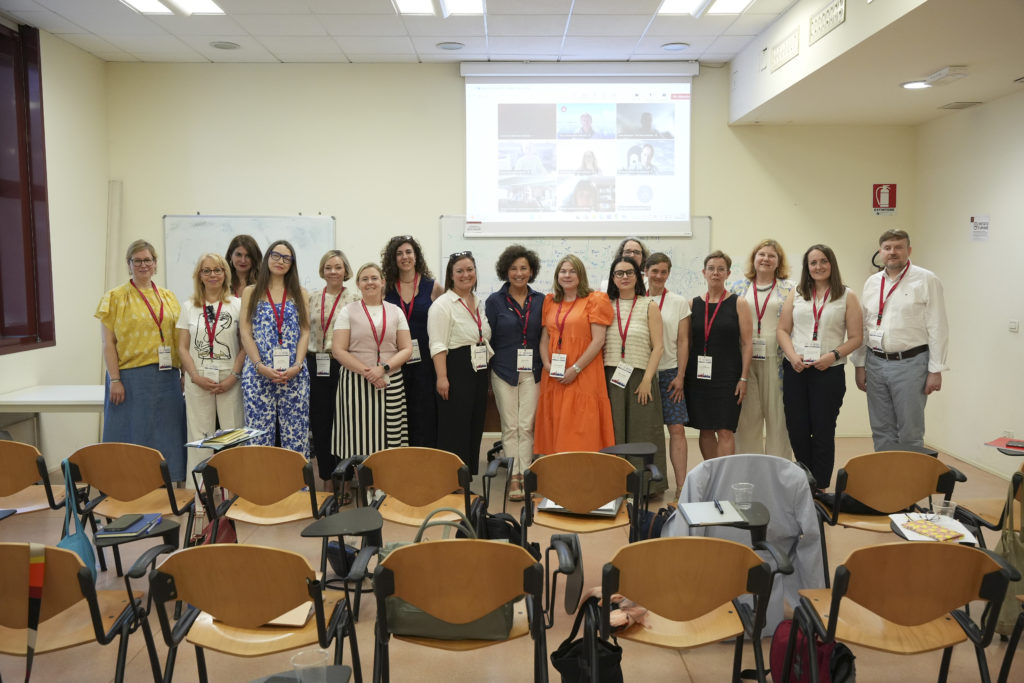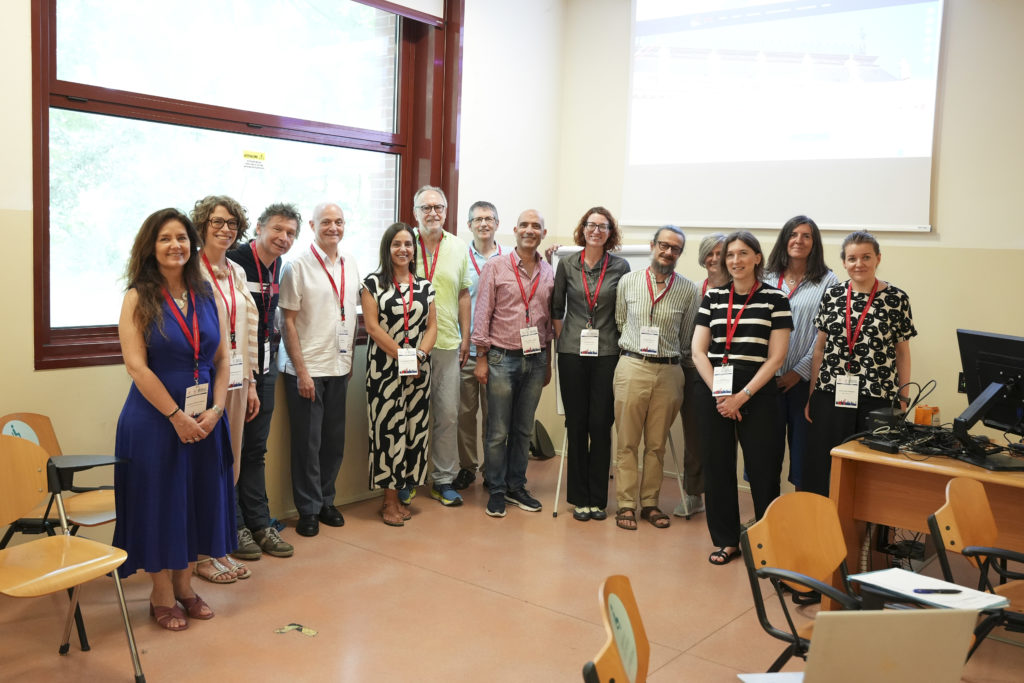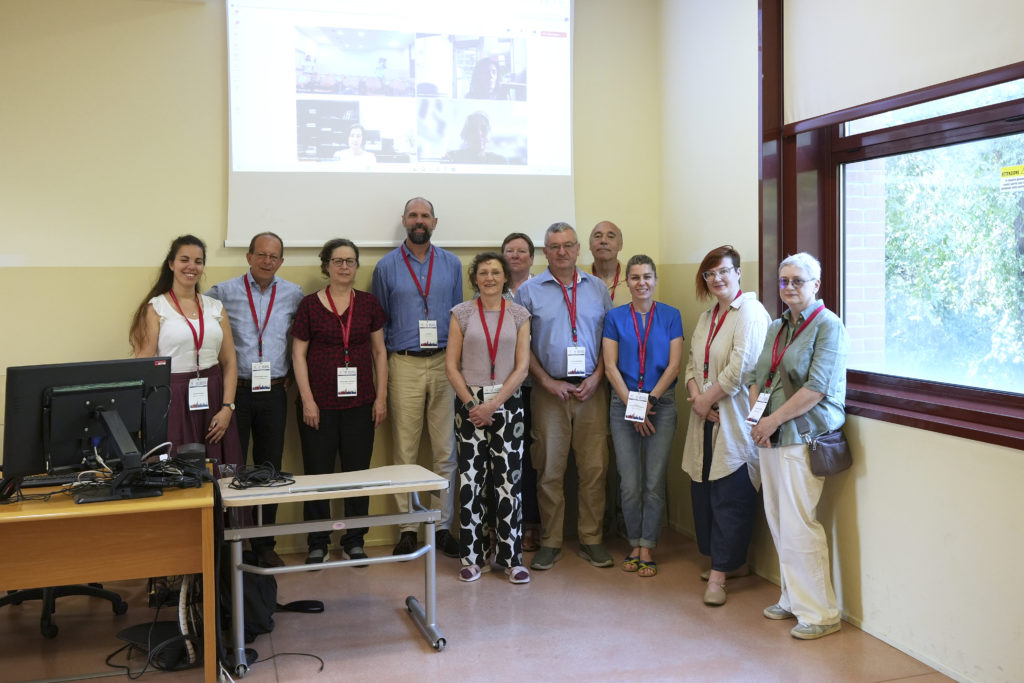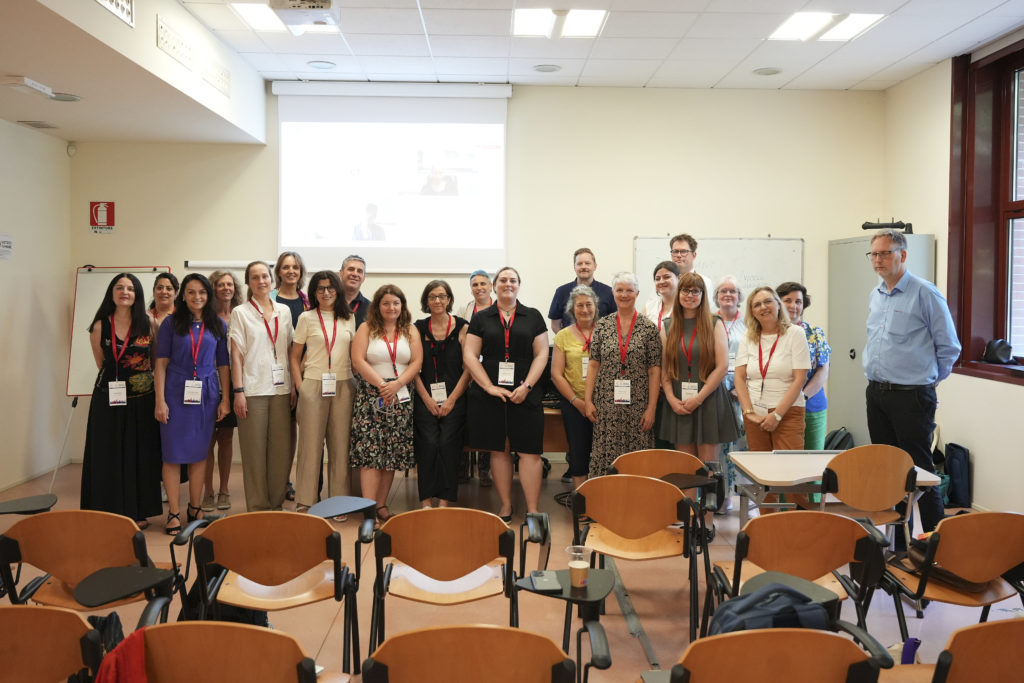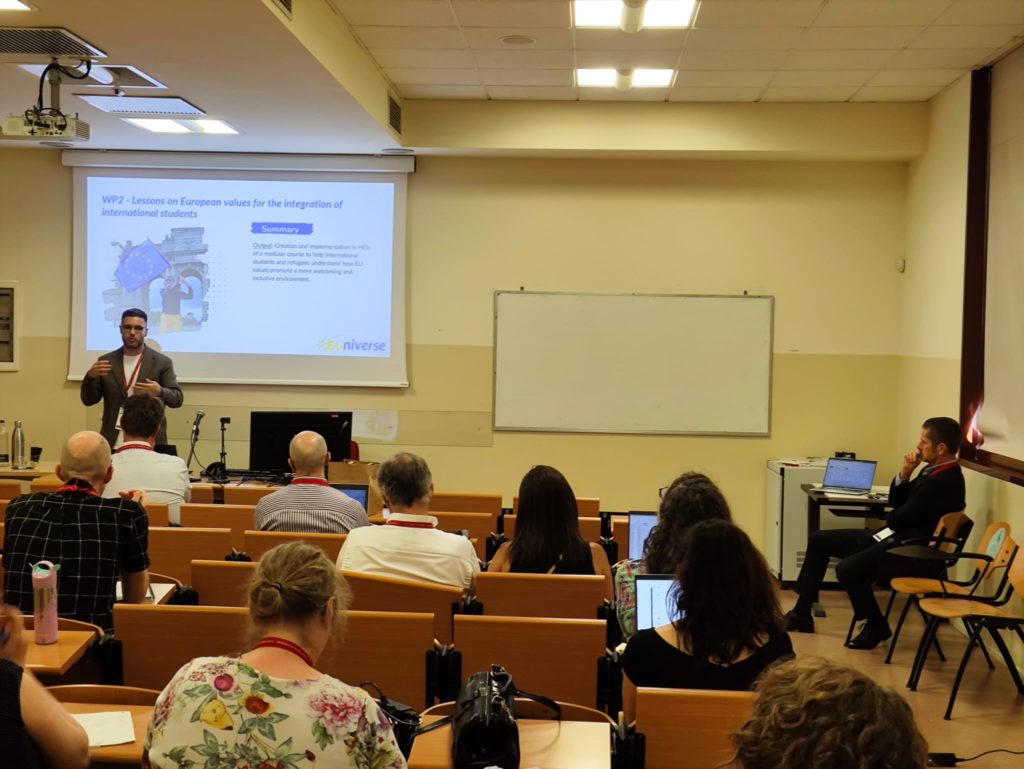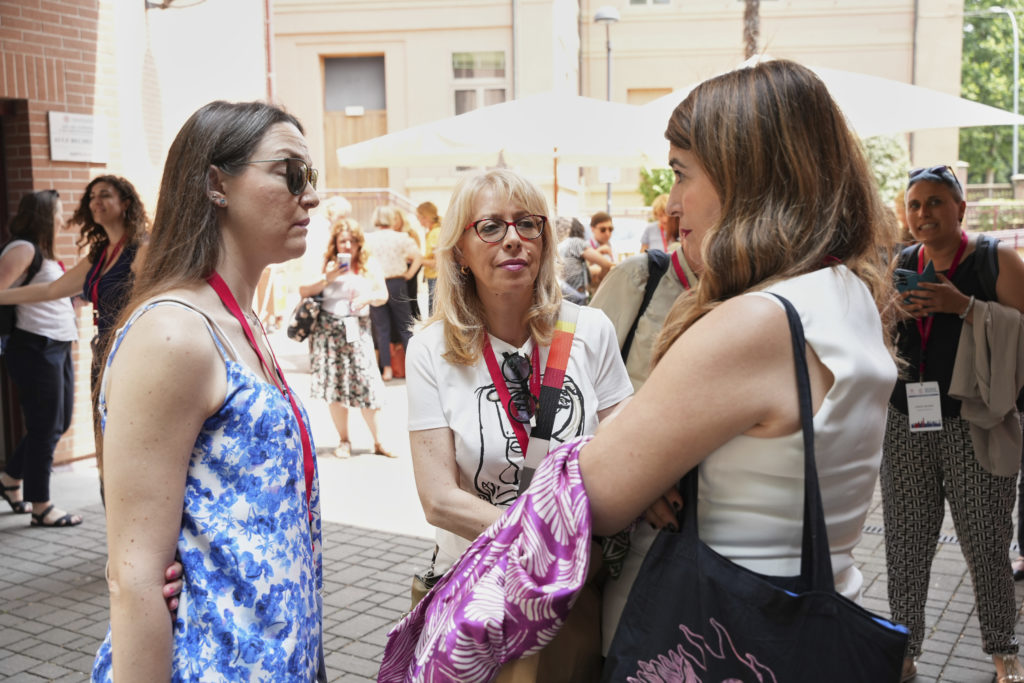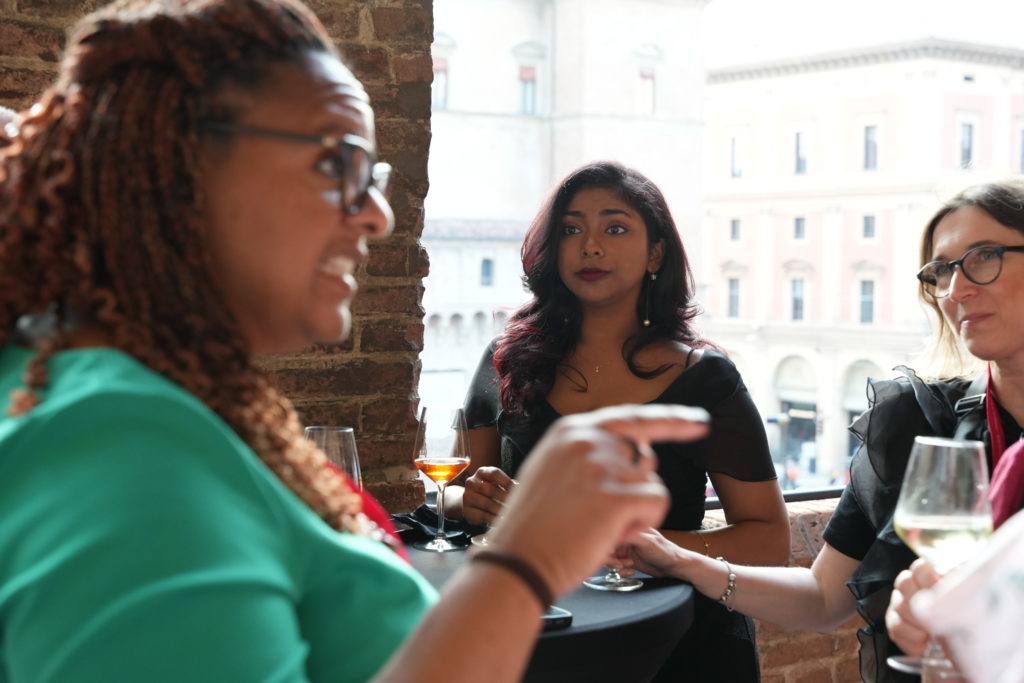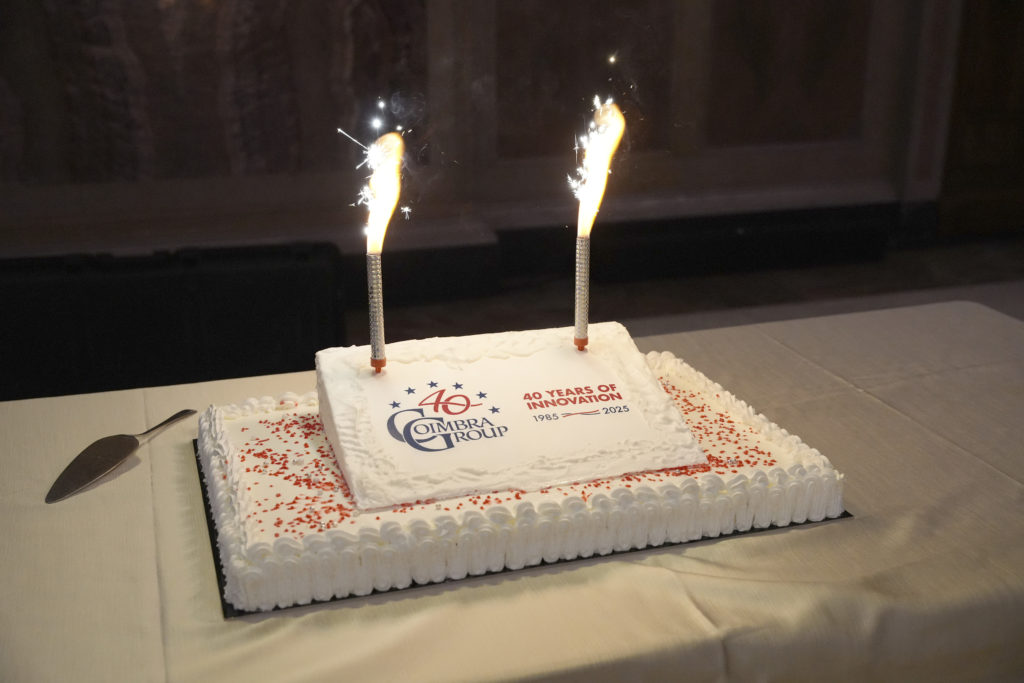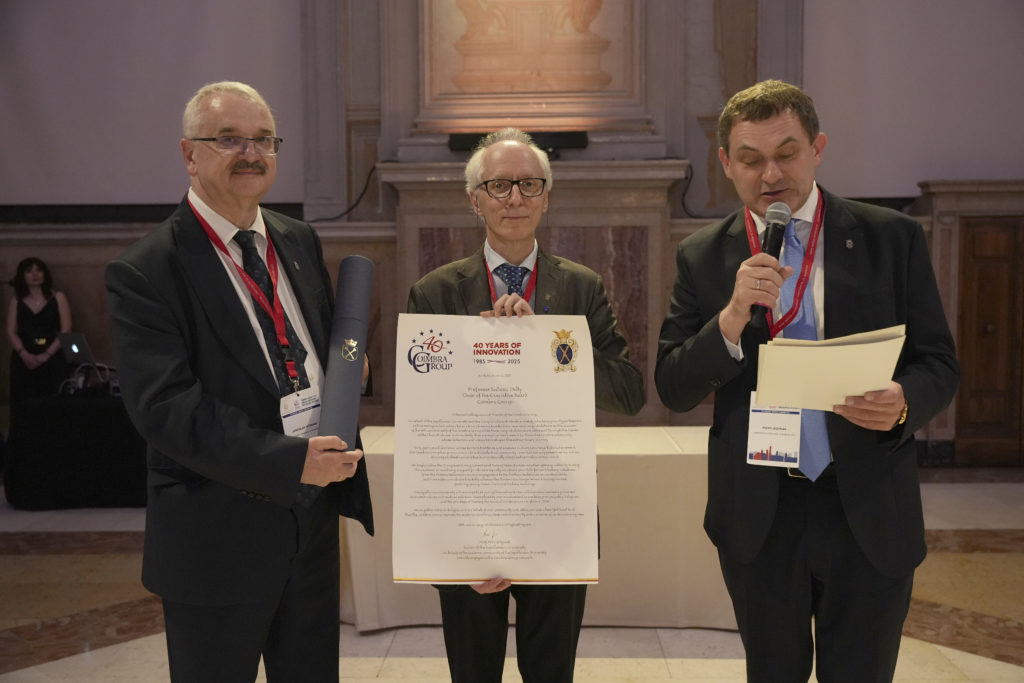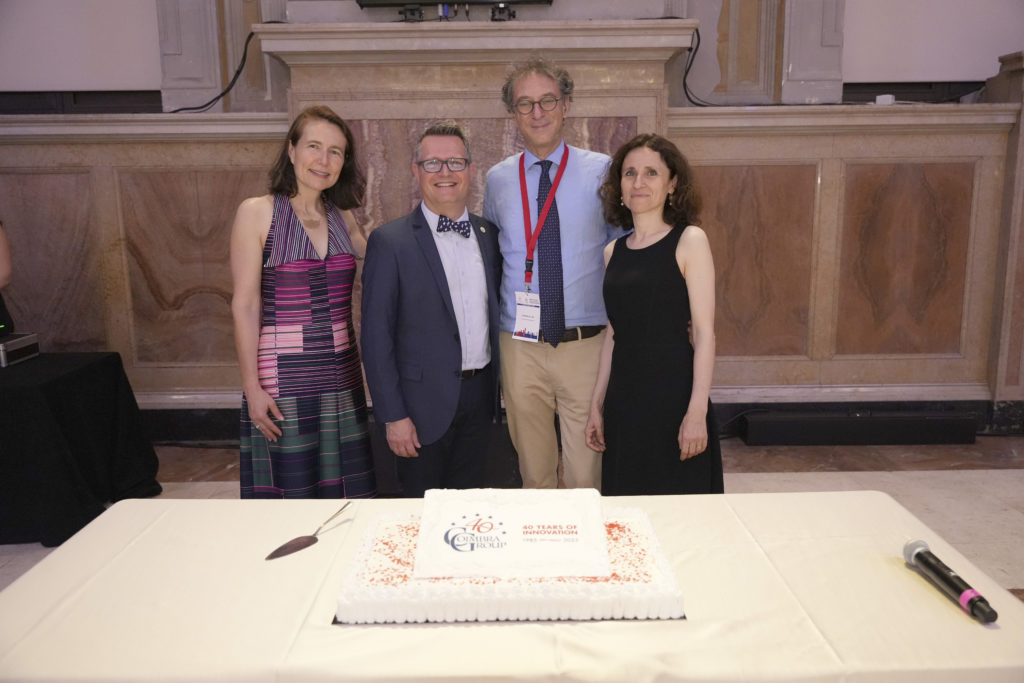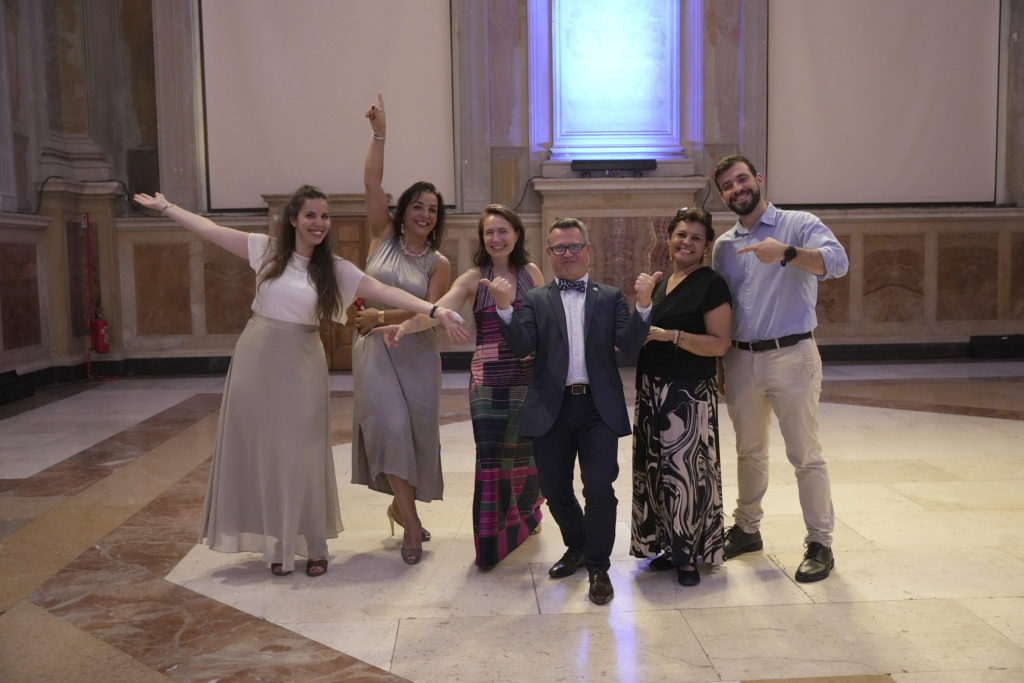Forty Years of Impact: Universities and Cities Shaping a Sustainable Future
19 June 2025
Coimbra Group Annual Conference and General Assembly 2025
Alma Mater Studiorum – Università di Bologna
The University of Bologna hosted the Coimbra Group Annual Conference and General Assembly, 10-13 June 2025. This year’s event held special significance, marking the 40th anniversary of Europe’s oldest university network. Under the theme “Forty Years of Impact: Universities and Cities Shaping a Sustainable Future”, the conference brought together more than 300 delegates from the Coimbra Group’s member universities to reflect on the past, celebrate achievements, and chart a path forward toward sustainability, inclusion, and global engagement.
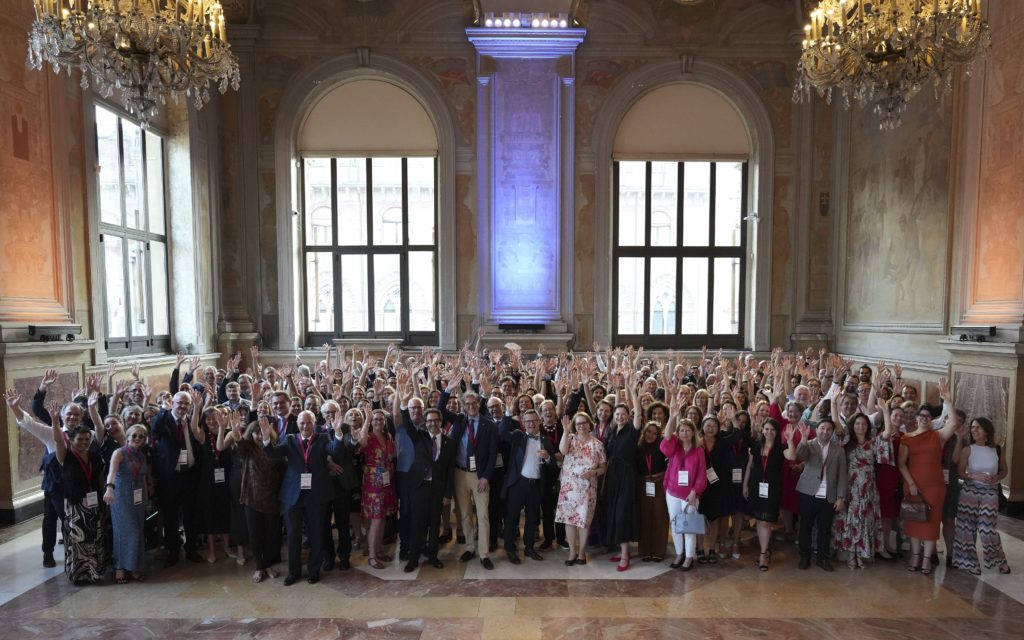
Working Groups: Foundations for Collaboration and Innovation
The event opened with the Working Groups’ meetings. All twelve Working Groups met to advance their ongoing activities, share updates on recent developments, and plan future activities. These meetings typically serve as vibrant platforms for cross-university collaboration, community building, and the development of joint projects and shared initiatives.
Some Working Group held elections and therefore we address our best wishes to:
– Francesco de Anna (University of Würzburg), reconducted as Chair of the STEM Working Group, with Giulia Licini (University of Padua) as Vice-Chair.
– Chantal Riccardi (Universityof Pavia) for the second mandate ahead of the Academic Exchange & Mobility Working Group, with Daniela Sauge (University of Geneva) as Vice-Chair.
– Siobán O’Brien Green (Trinity College Dublin) for her election as Chair of the Equality & Diversity Working Group, with Iveta Bayerová (Charles University) as Vice-Chair.
– François Lecellier as the new Chair of the Education Innovation Working Group, and Vanessa Viganò (University of Montpellier) as Vice-Chair.
– Ilaria Poggiolini (University of Pavia), elected new Chair of the Social Sciences & Humanities Working Group, with Balázs Apor (Trinity College Dublin) as Vice-Chair.
The groups play a vital role in shaping the Coimbra Group’s collective research agenda and policy development across a wide range of fields. For an overview of all 12 Working Groups please visit this webpage.
Book launch: “European University Legacies: Problematic Heritage and Contemporary Practices”
One of the intellectual highlights of the week was the launch of the book “European University Legacies: Problematic Heritage and Contemporary Practices” (Edinburgh University Press), led by the Heritage Working Group. Edited by Peter Bille Larsen (University of Geneva) and Markéta Křížová (Charles University Prague), the volume critically examines the complex and sometimes uncomfortable legacies of European universities.
Emerging from two collaborative workshops, and featuring contributions from 14 institutions, the book addresses themes such as colonial histories, restitution, symbolic justice, and the entanglements of universities with power structures past and present. The publication reinforces the Coimbra Group’s commitment to open, critical, and constructive engagement with university heritage and social responsibility.
Public Sessions: Digital Heritage, Local Partnerships for Global Impact, and Decolonisation
Open to a broader audience and live-streamed for accessibility, several thematic sessions led by Working Groups explored complex challenges currently facing universities.
A joint session between the Heritage Working Group and the Una Europa European University Alliance titled “Digital Heritage and the University” addressed the evolving role of digital tools in preserving and interpreting academic and cultural heritage. This was followed by the session on “Decolonising University Heritage”, which delved into the tensions between tradition and equity, offering pathways for institutions to confront historical legacies while embracing pluralism and change.
Meanwhile, another session, organised by the Global Partnerships Working Group, “University and Local Authorities: Global Partnerships in Action”, showcased innovative models of collaboration between universities and municipalities across Europe with global impact.
Erasmus Student Network meeting with the Coimbra Group Universities
This interactive meeting brought together representatives of Coimbra Group universities and volunteers of the Erasmus Student Network to strengthen collaboration between the two organisations. Following presentations of the Coimbra Group’s Durham Declaration, the key findings of the XV ESN Survey, and ESN’s welcome activities and student integration efforts, participants split into smaller groups to clarify their respective expectations regarding collaboration, identifiy opportunities for joint initiatives and student engagement, and align their efforts to improve the quality of support for international students at their universities.
How to handle the social responsibility within the European Universities Alliances? – Open Session on the European Universities Alliances (EUAs)
During the annual Open Session on the EUAs, representative from each of the eight Alliances involving CG Universities presented a concrete initiative illustrating how their Alliance has dealt with social responsibility. They highlighted the impact of their initiative as well as the challenges their Alliance has faced or is currently facing in this effort. Susanne Conze, Head of Unit for Higher Education at the European Commission, then reacted to the presentations, emphasizing the crucial role universities play as actors of societal change within their communities. She also reiterated the European Commission’s support for the Alliances.
Watch the replay here.
Climate and Sustainability Commitments: A Shared Declaration
The keynote speech by Andrea Rinaldo, Stockholm Water Prize Laureate, titled “Reflected in Water: Development, Resilience, Inequalities”, offered an urgent call to address global water challenges and their deep links to inequality and climate justice. His lecture set the stage for the Conference on Climate Change: “From Durham to Bologna; the Durham Declaration”. Building on the Durham Declaration on Climate Change and Sustainability, Durham University and the Coimbra Group presented a roadmap to transform these commitments into action, complemented by reflections from the Rectors of the University of Turku and Utrecht University.
Drawing from the legacy of the Poitiers Declaration (2016), the Durham Declaration firmly places sustainability at the core of the Coimbra Group’s mission moving forward.
Empowering Communities: From Local Impact to Global Engagement
Giovanni Molari, Rector of the University of Bologna, opened the session, followed by addresses from Roxana Minzatu, European Commission’s Executive Vice-President for Social Rights and Skills, Quality Jobs and Preparedness, and Isabella Conti, Regional Councillor for Welfare and Education of Emilia-Romagna. All three speakers emphasized the transformative power of collaboration between universities and local and regional authorities.
The session was followed by a keynote speech by Kum Kum Bhavnani (University of California, Santa Barbara) on “Global Shifts, Innovative Futures: shaping inclusive excellence“, introduced by Raffaella Campaner, Vice Rector for International Relations. Student Ambassadors Onyekachi Kizito Ugwu and Aiswarya Varadarajan Nair, also contributed to the discussion
This theme continued in the panel discussion, “Empowering Local and Global Communities: from the Poitiers Declaration to the Future”, featuring mayors, rectors, and regional leaders. Together, they explored how universities and cities can collaborate to co-create solutions for sustainable development and enhance civic well-being.
Spotlight on Future Researchers: 3MT Final and Early Career Voices
A lively highlight of the conference was the final round of the Coimbra Group’s Three Minute Thesis (3MT) Competition, which has become a signature event celebrating doctoral excellence and science communication.
This year’s winner, Almudena Moreno-Borrallo (Trinity College Dublin), captivated the jury and audience with her pitch on “Triggering Healing: Materials that Outsmart Brain Cancer”. Bianca Brandl (University of Graz) and Uffe Kjærgaard (Aarhus University) also delivered impressive presentations on “Personalized Medicine – Health for Every Body” and “Looking Inside the Liver: Unveiling Cancer’s Metabolic Fingerprint”.
This initiative, coordinated by the Doctoral Studies Working Group, showcases the Coimbra Group’s investment in the next generation of researchers and its commitment to accessible and impactful science. Learn more about this edition and watch the replay here.
Inclusive, International, and Responsible Universities
The closing sessions focused on critical strategic themes, including the evolving responsibilities of European University Alliances and the importance of institutional self-reflection. One session, titled “Is Your University Truly Inclusive and International?”, and organised by the EUNIVERSE project, prompted an open and sometimes provocative dialogue on structural inclusion, international cooperation, and the challenges of embedding equity into university systems.
These conversations reaffirmed the Coimbra Group’s commitment to being not only a network of academic excellence but also a community of institutions committed to social justice and institutional transformation.
Looking Ahead: New Members and Renewed Governance
The General Assembly voted to formally welcome three new members to the network: University of Leeds, Newcastle University, and University of Wroclaw, further enriching the Coimbra Group’s diversity and reach. Their integration marks a new chapter in the network’s evolution and reinforces its shared vision of inclusive, research-led, and socially engaged higher education.
The Assembly also confirmed the new Executive Board through a series of votes. Daniel Donoghue (Durham University) was re-elected for a third term, while Beatrix Busse (University of Cologne) and Coco Norén (Uppsala University) secured second mandates, and Nicoleta Popa (Alexandru Ioan Cuza University) was elected for her first. Busse and Donoghue will serve respectively as Vice-Chair and Treasurer. Giovanni Molari, Rector of the University of Bologna, was named Honorary President, succeeding Marjo Kaartinen.
In the Rectors’ Advisory Group, Karen O’Brien (Durham University) joined as a new member, alongside returning rectors from Charles University and the University of Barcelona.
A Celebration of Shared Values and Common Purpose
A deeply moving moment came with a letter from the Jagiellonian University, one of the Coimbra Group’s founding members. The letter celebrated 40 years of the network’s commitment to solidarity, civic responsibility, and collective action in service of society. It reminded delegates of the Coimbra Group’s enduring mission – to advance academic freedom, intercultural understanding, and innovation in higher education.
The 2025 Annual Conference in Bologna was not only a celebration of four decades of impact, but also a forward-looking gathering that reaffirmed the network’s commitment to shaping a more inclusive, sustainable, and collaborative future for universities and their communities.
As we look ahead, please save the date for our 2026 Annual Conference & General Assembly, which will take place in Granada from 16 to 19 June 2026 – we look forward to seeing many of you there! We are also delighted to hold the Coimbra Group 40th anniversary closing event, co-organised with Utrecht University, which will take place on 21 November 2025 (8:30–17:00) in Brussels, under the topic: Reinventing Campus Democracy: Bridging Divides and Advancing Solutions.
Photo Gallery
